
Liverpool, Shankly, Socialism
24.09.22
As Labour conference opens in Liverpool Philosophy Football's Mark Perryman revisits Shankly's Clause Four
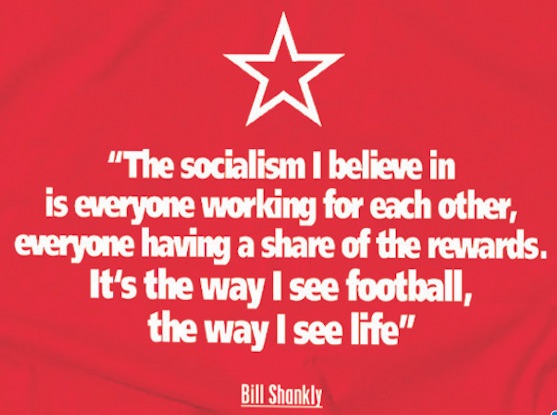
'The socialism I believe in....' Bill Shankly. In 1995 newly elected Labour leader Tony Blair persuades the party to drop ' common ownership of the means of production, distribution and exchange' from Clause Four of Labour's aims and values. The left intellectual, and huge Liverpool fan, Doreen Massey found for us, Philosophy Football, Shankly's 'socialism' quote and urged us to produce it as one of our T-shirts in response, the fact that during his playing career Shankly wore Number 4 on his back at Preston North End, well how could we resist.
An immediate hit, shortly after its release the legendary DJ, and another huge Liverpool fan, John Peel, phoned me. Would I drop one round to his BBC studio, he was off to Glastonbury the next day to front the station's TV coverage of the festival. This was product placement from heaven! The following week our post bag, pre-internet, was bulging to overflowing with orders. One was from the other reds and deadly Liverpool rivals, Manchester United first teamer and legend Brian McLair, Shankly's socialism appeal, universal.
Another left intellectual, Stuart Hall had been there when Doreen hunted out the Shankly quote from her bookshelves (this shirt had the most extraordinary of gestations). Almost a decade later in an essay, co-written with Alan O'Shea, Stuart set out a view of common sense that in many ways explains both the Shankly version of socialism's appeal and its radical potential:
" The battle over what constitutes common sense is a key area of political contestation. Far from being a naturally evolved set of ideas, it is a terrain that is always being fought over."
Shankly's description is of a socialism located in a core value for any successful team, individuals working together as a collective, teamwork. And any rewards for the success that this delivers, it helps of course that Shankly led Liverpool, to a lot of success, should be shared out equally too. Brilliantly he then connects these values he instilled in the Liverpool boot room, training ground, on the pitch at Anfield, to life beyond the touchline too.
What this amounts to is the mix of common sense with a distinct politics. Unless the two are combined however accessible the language it becomes devoid of any meaning in the thwarted ambition of seeking to appeal to all. This week's Labour conference meets under the platform slogan ' Fairer, greener, future'. What does that even mean? Is there anything in those three words anybody could possibly object to? In what sense does this amount to political contestation of the sheer scale of the crisis the Tories, including the climate emergency, are plunging this country into? And for those who suggest none of this can be achieved by a single slogan, in their very different ways Margaret Thatcher 'There is no alternative' and Tony Blair 'Tough on crime, tough on the causes of crime' achieved precisely that, mapping out a distinct, easy to understand position from which to contest, politically.
As a footballing city Liverpool provides a single tragic moment to reveal the horrific consequences when common sense isn't contested. On the 20th anniversary of the Hillsborough disaster Andrew Hussey write a New Statesman essay, ' A city in mourning, a game in ruins' which made precisely this link:
" A crowd being killed live on television in front of your eyes. A crowd little different from the working class Liverpudlians of the 1960s who had inspired Bill Shankly's greatest teams with their passion and collective sense of belief. The scenes of singing and scard-waving on the Kop had been shown in black and white newsreels across the world."
What did those pictures project? Andrew's description of their impact is suitably evocative:
" This was the mob. the crowd, the working class in a group and in action, but it was nothing to be feared. The humour and dignity of this crowd were iconic. These images announced to the world the cultural vibrancy of ordinary people and their pleasures. To this extent, Liverpool fans wre as crucial a component of 1960s pop culture as the Beatles."
But within two decades an unsuccesfully contested common sense Thatcherism had entirey transformed this sympathetic representation, for the worse:
" By the end of the Thatcherite 1980s this same crowd had become the object of scorn and derision. To be working class, to be a football fan, to be unemployed and northern was to be scum."
And on 15th April 1989 for 97 who went to a football match, dead. The decades long fight for justice for those 97, which still hasn't ended, has been as much about contesting this lethal 'common sense' meaning of the crowd that day as exposing the ways they were appalligly treated, and killed. The two inextricably linked.
Shankly's socialsm in practice? From the campaign for Hillsborough justice to Steve McManaman and Robbie Fowler stripping off their Liverpool shirts to reveal underneath T-shirts supporting the Liverpool dockers' strike (here's hoping the current squad do the same for the 2022 strike). The matchday collections outside Anfield and Goodison, uniquely uniting Everton and Liverpool fans as 'Fans Supporting Foodbanks' which Ian Byrne, now a Labour MP, helped found. Or the public campaigning work of Everton legends Neville Southall and Peter Reid on issues ranging from homophobia and Brexit. And Liverpool captain Jordan Henderson organising all his fellow, and rival, Premier League club captains to raise huge sums in support of NHS key workers during the pandemic.
The 2022 version of the Shankly Way, a common sense socialism, contestation and solidarity, not a bad three to have at the back. But will Keir Starmer's Labour even allow that threesome on the conference pitch?
Further Reading The David Peace novelisation of Shankly's life, career and politics Red or Dead
Note Our Philosophy Football Shankly 'Socialism is...' T-shirt is available from here
Mark Perryman is co-founder of the self-styled 'sporting outfitters of intellectual distinction' aka Philosophy Football
Right Red Reads for Labour Conference '22
23.09.22
Coinciding with Labour conference a wave of books Philosophy Football's Mark Perryman chooses the ones that make us think
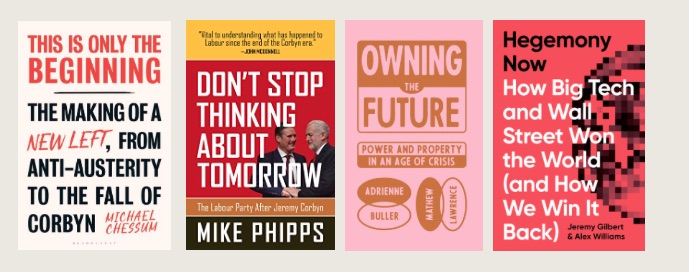
For years, decades, the annual Labour Party Conference hasn't been much more than a glorified rally. It's easy to blame this descent into media spectacle on Peter Mandelson, but then Jeremy Corbyn did little or nothing to change this with conference delegates indulging in endless choruses of Oh Jeremy Corbyn. Not a lot of any particular note takes place but in and around the fringe , particular The World Transformed Festival and this year the launch of the Compass Win as One campaign there are at least some signs that Gramsci's concept of the party as an 'organic intellectual' isn't entirely dead as a proverbial.
To help serve this survival of hope a heap of books are published every September, or thereabouts. of a broadly Labour orientation. This year isn't any different, if anything more than usual and for the most part looking forward to the Labour version of 'what is to be done' (with apologies to VI Lenin) rather than as in previous years 'what did we do wrong'. Agree or disagree with the conclusions, these are books designed to set readers thinking, they succeed or fail to the extent they succeed in this objective.
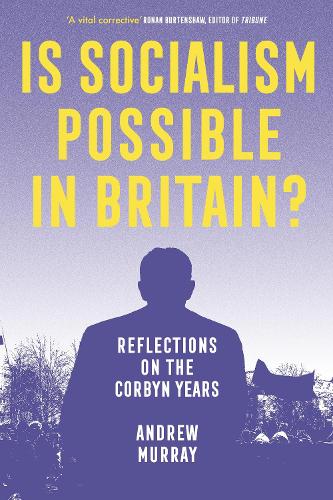
A kind of companion volume to his last book The Fall and Rise of the British Left (published for a previous Labour Conference, 2019 when shortly after 'rise' most definitely changed to 'fall') Andrew Murray's Is Socialism Possible in Britain? Reflections on the Corbyn Years is a, perhaps surprisingly, critical read. Murray loses patience with Corbyn's indecision and caution but most of all on Brexit. The backing of a second referendum he sees as central to the 2019 defeat. Murray was one of a triumvirate of key advisers to Corbyn, Seumas Milne and Steve Howell the other two, with a political background connected to the hardline tradition of the Communist Party, his wide-ranging critique displays a thoughtfulness and openness to alternative views that this tradition, particularly on the USSR, wasn't exactly renowned for. However having little time for the awkward fact the overwhelming majority of Labour members were, and remain (sic) anti-Brexit, and in 2019 backed the second referendum option, suggests a 'politics from below' still has some way to go. As for answering the question ' Is socialism possible in Britain' most readers, me included, will surely answer, for good or ill, that's one -ism unlikely to be promised in the next Labour manifesto, is it?
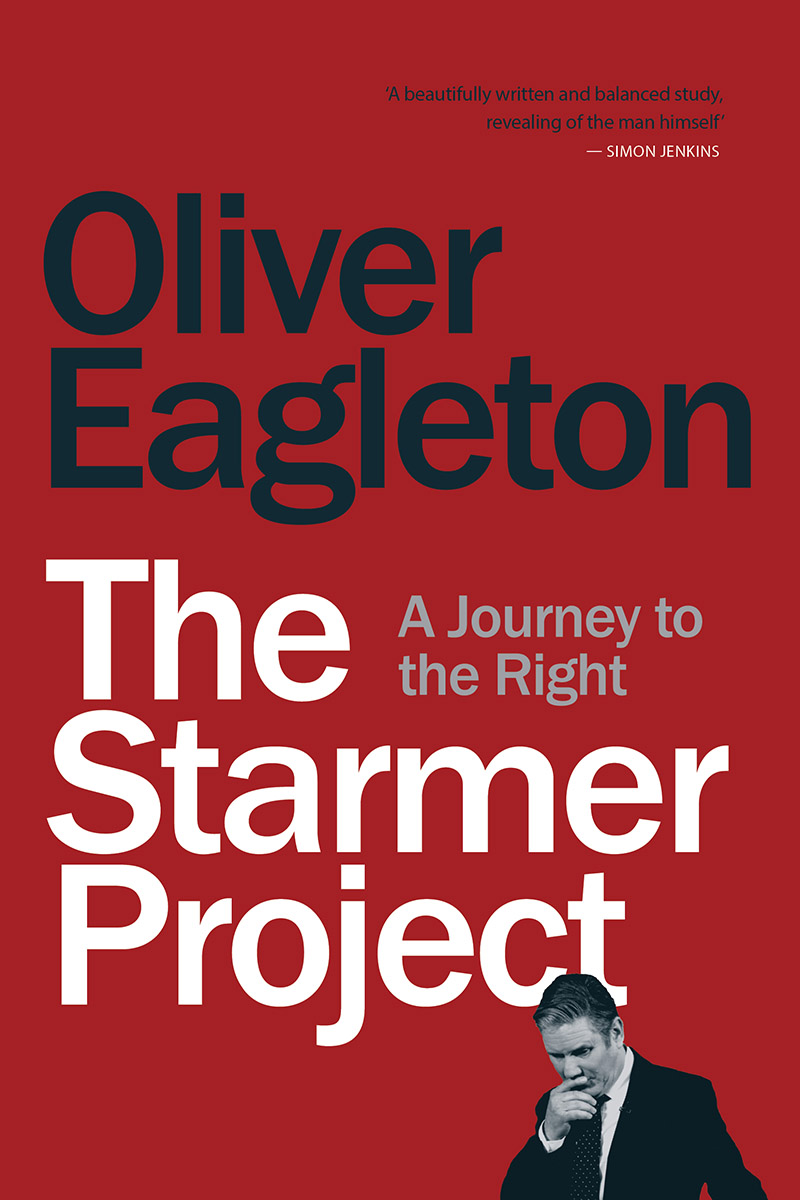
The Starmer Project : A Journey to the Right by Oliver Eagleton attempts to explain the meaning for the shift from Corbynism to Starmerism via a potted political biography of Sir Keir. The book is certainly rich in well-researched detail, much of it previously unpublished and the kind of details that Sir Keir would probably prefer remained unpublished. But the narrative is framed by a politics that borders on the conspiracist. There's this bloke called Starmer, he's not what he seems, he's fooled a lot of people and this needs exposing. What such a narrative amounts to is entirely writing off the reasons he won the leadership election, why so many who'd backed Jeremy, 60% is one reliable estimate, switched to Keir. The relative acquiescence by Labour to the shift he then executed to the right cannot be explained by a conspiracy. And Labour's prospects at the next General Election can't be accounted either simply by a yearning for the return of Corbynism.
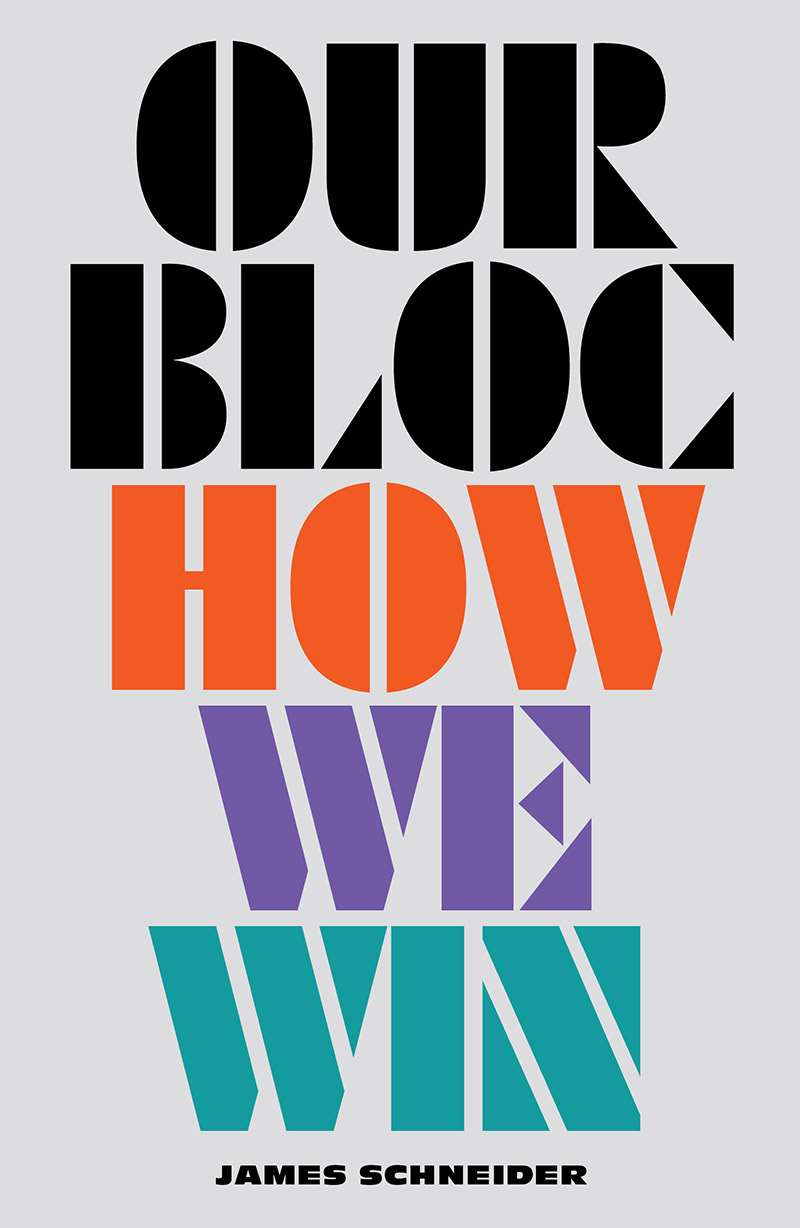
With Our Bloc : How We Win James Schneider attempts, via an extended polemic, something different. Citing Gramsci, Stuart Hall and Chantal Mouffe on hegemony and populism is a good start, however while wide-ranging for such a short book the link between theory and practice tends to get lost in establishing the correctness of James' argument. A 'bloc' that extends beyond, but doesn't reject Parliamentary Socialism, Ralph Miliband and Raymond Williams are both also cited, is absolutely correct. But I lost count the number of times James said X, Y, Z could do this, or that, for such a bloc to materialise but not much about either 'how' or 'why' in the past initiatives such as Enough is Enough haven't become the kind of bloc of James describes. Perhaps this time it will be different?
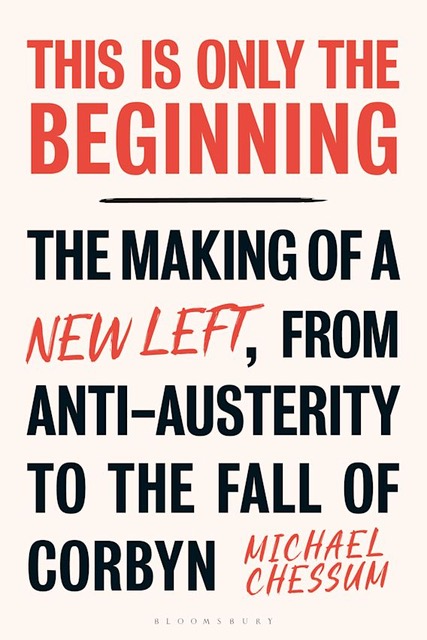
Though the points of disagreement may be marginal to all but those most immersed in the marginalia of the left Michael Chessum comes to the subject of the Labour Party from a different politics to Andrew Murray, Oliver Eagleton and James Schneider who broadly share the same perspective on the Corbyn-Starmer shift. This is Only The Beginning: The Making of a New Left, From Anti-Austerity to The Fall of Corbyn is Michael's hugely impressive testament to the point of this disagreement. His argument has an interesting and quite original format, of the proverbial two halves. First half, he locates the core of Corbynism's support generationally in the anti-tuition fees movement of 2010-11 and afters. The period when Paul Mason famously declared Why its all kicking off everywhere. In the second half Michael connects this ferment to both the rise, and fall, of Corbynism. Shorn of conspiracism, full of depth and an understanding why the fact Labour members, including the 'kicking off' generation, are overwhelmingly anti-Brexit but no remain dupes either, this is a read the left needs right now. What a shame then not a mass market cheap paperback and instead an expensive £20 hardback, sorry, a massive missed opportunity by the publisher.
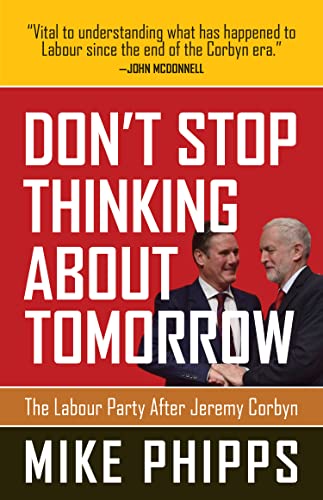
From a different generation to Michael, and wading through the left marginalia, not of quite the same politics either, nevertheless Don't Stop Thinking about Tomorrow: The Labour Party after Jeremy Corbyn by Mike Phipps can almost be read as a companion, 'oldie version' to This is Only the Beginning. Mike's book deals in greater depth with the 'what happens next' which is the shortest section in Michael's, and all the better for it. No wild-eyed party romantic, Mike is in it for the long haul, with a powerful indictment of the flunking out position. This is the politics that Murray, Eagleton and Schneider reject personified, this trio prefer to demonise, by John McDonnell. Whether the space remains for such a left is an open question but Mike Phipps gives us the grounds for, just, maybe. And as an added bonus, the publisher chose a cheap(ish) paperback price £13.
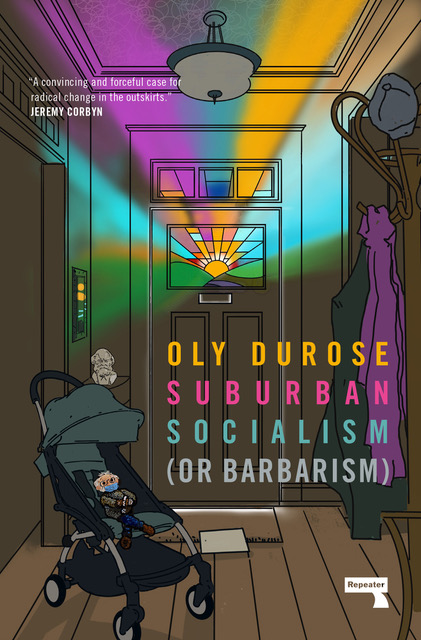
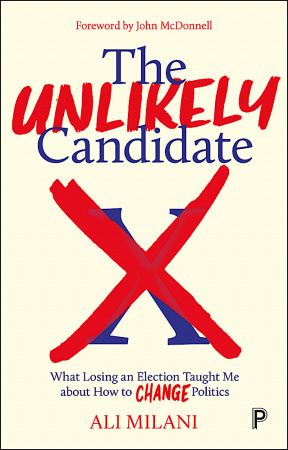
Two books take a very different, and most compelling, approach to exploring the current state of Labour, both written by Labour candidates in the 2019 General Election (spoiler alert: neither won). Ali Milani The Unlikely Candidate : What Losing an Election Taught Me about How to Change Politics is Ali's account of his campaign to unseat Boris Johnson in Johnson's Uxbridge and South Ruislip constituency. Targeted by Momentum as a winnable seat the campaign was both high profile and enjoyed considerable activist support. Winnable? If only! Defeated but unbowed Ali weaves his experience into a portrayal of what the transformation of Labour into a community based, practical activism led Labour Party would look like. Something very different to the more mainstream version currently acing as the very limit of the party's ambition. If Uxbridge might have seemed winnable Brentwood and Ongar was off the scale, a safe and solid Tory seat. Oly Durose came a distant, very distant, second for Labour in 2019 but it spurred him to write a fascinatingly original book Suburban Socialism (or Barbarism) . 'Blue Wall' seats are where Labour and the Liberal Democrats, despite losing, did proportionately better than elsewhere. Oly has unearthed a new battle ground, suburbia. Too late for his own campaign, yet much informed by it, he mixes national identity, economic unrealities, Mark Fisher's 'capitalist realism' and more to summon 'suburban socialism' into existence.
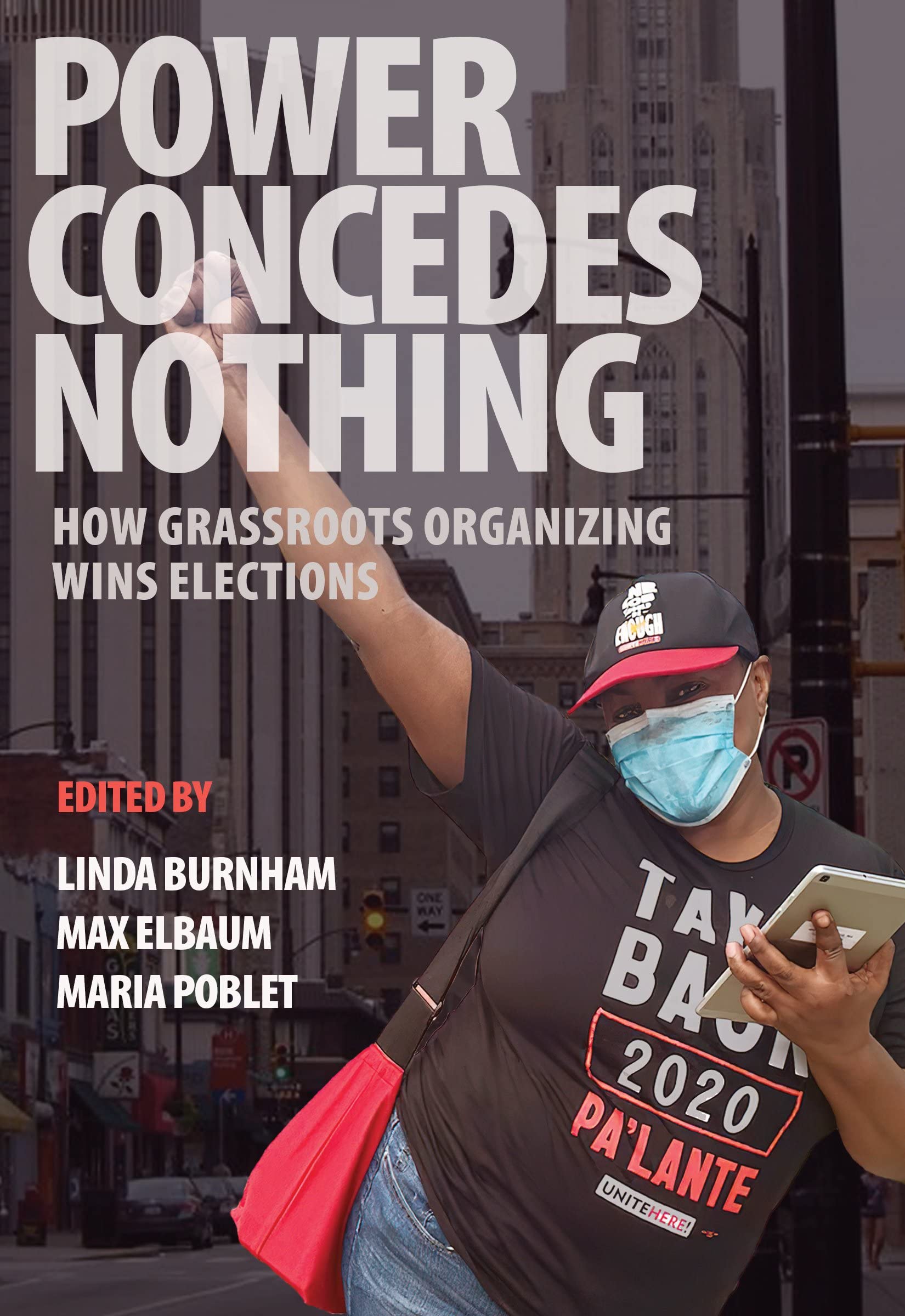
Both books draw on the Bernie Sanders campaign for inspiration. To win Democrat primaries against all odds house by house, street by street, block by block, neighbourhood by neighbourhood all the way up to the Democrat Presidential nomination, almost. Power Concedes Nothing: How Grassroots Organizing Wins Elections edited by Linda Burnham, Max Elbaum and Maria Poblet examines this model of highly localised organising with hugely radical purpose that has a rootedness in the US left mostly absent over here. My advice, read and learn.
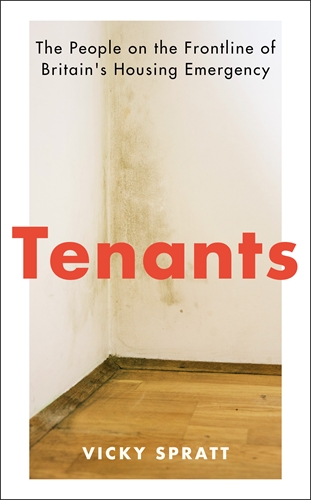
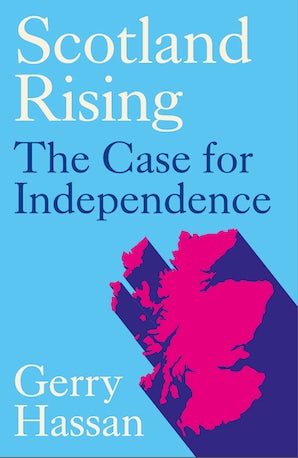
But to effect change, from the local to the global, means Labour needs policies that disrupt and transform the current consensus. A consensus constructed mostly by policing the boundaries of possibility. The growing plight of 'Generation Rent' exists outside of that consensus, both plight and solutions. Vicky Spratt's Tenants puts that right, and then some, a politics centred on the same would both re-order mainstream politics' priorities and connect with those excluded by those self-same priorities as they currently exist. The current basis of the British state, the Union, is an absolute pillar of consensus politics. Yet independence is of course a huge issue in Scotland, and to a lesser extent in Wales too. But in England, by far the most populous of the three nations on this island it scarcely figures except as a 'coalition of chaos' scare story. Labour, outside of parts of the Welsh party, supports the consensus though a big part of this is the politics of wilful omission. Thus, when Labour chooses to 'wrap itself in the flag' it is the Union Jack; England's St George, the Scottish Saltire, the Welsh Dragon remain unwrapped. The party entirely uncaring of any impact this has in Scotland, Wales and indeed England. To help correct Labour Unionism Scotland Rising : The Case for Independence from the Scottish political commentator Gerry Hassan should be required reading for every Labour conference delegate and a major session at The World Transformed but we all know it won't be, as a result Unionist Labour in Scotland trundles on towards self-destruction
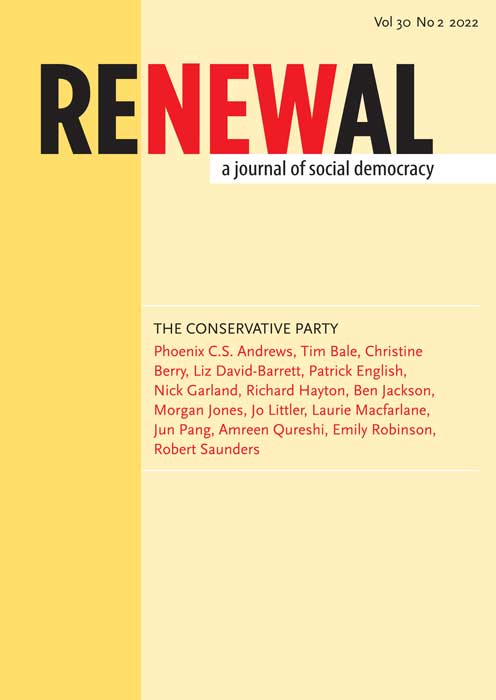
Debate at conference is as carefully staged managed as the leadership can get away with. Meanwhile the fringe strictly divides itself into the right and the left, dialogue in-between next to non-existent, pluralism, for both sides, a dirty word. All together a most unhealthy political culture. Renewal: A Journal of Social Democracy provides a portent of what a Labour Party rooted in dialogue and pluralism might look and feel like. Despite being under resourced and a bog-standard design Renewal is full of heterodox and original writing on Labour's identity, this year alone the politics of coalition, The Conservatives' political economy all treated with a depth and rigour unheard of in the rest of Labour's left media. Published quarterly, much of it free to download too and supplemented by a blog too, my advice? Subscribe, here.
Bit by bit an alternative to Starmerism, ideas-wise is emerging, and any optimism lies with this coming almost entirely from a new generation left. The Labour Right have the numbers, and don't they know it, but for ideas all eyes leftwards. Two, very different books absolutely prove my point.
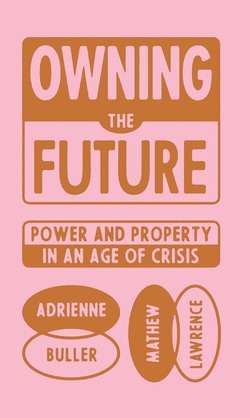
Owning The Future : Power and Property in an Age of Crisis co-authored by Adrienne Buller and Matthew Lawrence (respectively Director of Research and Director at the Common Wealth thinktank) could pretty much be the basis for the next Labour manifesto, of our dreams. Beveridge, Keynes and Cripps rewritten, updated, transformed with a bit of 21st century Bevan thrown in for very good measure. Vital, because without Labour addressing the role of the state and public ownership in reversing four and a half decades worth of neoliberalism triumphant what would a Labour victory amount to in 2024? A very welcome Tory defeat on the basis of the lowest expectations imaginable.
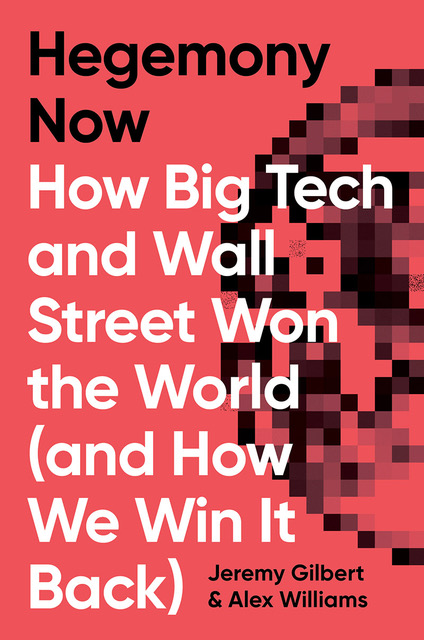
If Adrienne and Matthew raise our expectations to the policies of the possible, Jeremy Gilbert and Alex Williams' Hegemony Now : How Big Tech and Wall Street Won the World (and How We Win It Back) do the same with the politicsof the possible. Power and agency, a strategy towards effecting radical change via the broadest coalition of support imaginable, the breadth of support an organic part of that process, this is what Jeremy and Alex describe. It was in the 1980s via Stuart Hall and the magazine Marxism Today in particular that Gramsci, the war of position, hegemony achieved a purchase on parts of the Left. It is the measure of Jeremy and Alex's achievement that they have managed to reinvent this most creative of left intellectual legacies for an entirely new generation scarred by the consequences of the failure of these ideas to become a majoritarian left tendency the last time. Better luck this time?
Whether in Liverpool for Labour Conference or observing with interest, despair, hope from afar Owning the Future and Hegemony Now more than most provide the signposts for a Left equipped to help shift despair to hope. And in the process prepare ourselves for the two years until the 2024 General Election as active participants in proving that low expectations don't have to be all we can look forward to.
Note No links in this review are to Amazon. If it can be avoided buying from corporate tax dodgers, please do so
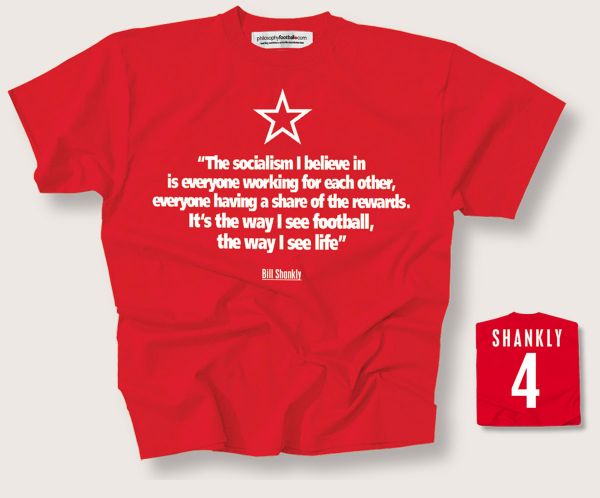
Shankly on socialism With Labour Conference taking place in Liverpool,well we couldn't resist, available from here
The day The Clash asked should they stay, or go?
17.09.22
Philosophy Football's Mark Perryman remembers the day Joe, Mick, Paul and Topper broke up

1982, the year of the Falklands War, Gotcha! And when the ships returned to blighty laden with troops greeted with the banner 'Call off the Rail Strike or we'll call in an Airstrike'. A Thatcherite version of patriotism triumphant complete with Michael Foot's Labour Party in tow backing the war.
Grim times, and for those of a certain musical-political disposition, the soundtrack that gave us hope, The Clash, split up. The 17 September '82 release of their single Should I Stay or Should I Go marked the end of the band's classic line up; Joe Strummer, Mick Jones, Paul Simonon and Topper Headon. Various versions struggled on for a while, and both Mick with Big Audio Dynamite and Joe with The Mescaleros went on to produce some great material. But for The Clash as we knew them. The end.
For those of a certain age four decades have passed but nothing will ever replace the sounds and the culture we associate with what seems now that remarkably short time The Clash were together, 1976-82.
In the aftermath of the Falklands War the leading left intellectual of the time, Stuart Hall, described the mood and the political consequences:
" We are up against the wall of a rampant and virulent gut patriotism. Once unleashed, it is an apparently unstoppable, populist mobiliser - in part because it feeds off the disappointed hopes of the present and the deep and unrequited traces of the past, imperial splendour penetrated into the bone and marrow of the national culture. "
But no determinist Stuart also outlined why it didn't have to be this way:
" The traces of ancient, stone-age ideas cannot be expunged. But neither is their influence and infection permanent and immutable. The culture of an old empire is an imperial culture; but that is not all it is, and these are not necessarily the only ideas in which to invent a future for British people. Imperialism lives on - but is not printed in an English gene. In the struggle for ideas, the battle for hearts and minds which the Right has been conducting with such considerable effect, bad ideas can only be displaced by better, more appropriate ones."
The Clash did that 'displacing' in a manner we could sing along with, dance to, wear as a badge with pride. Mixing Notting Hill and Brixton with Rocking against Racism and Working for the Clampdown this was a band that stood defiantly for a very different version of Englishness to Thatcherism. Robin Hood, the Levellers, Cable Street all wrapped up in black leather jackets, bandanas and Doctor Martens. English Civil War The Clash belted out but not for even a fleeting moment petty-minded nationalism, instead theirs' was the popular internationalism of the triple album Sandinista! A rebel music, home and abroad too, quite different to the more than occasionally twee so-called 'World Music' that emerged at the time.
For a generation The Clash were, and will always be the best band of all time, they might not have changed the world but they certainly changed us. They started off as a 'garage band' as proudly proclaimed on their 1977 debut album track Garageland (decades later brilliantly rewritten by punk poet Attila the Stockbroker as Farageland). Attila one of those who keeps the d-i-y rebellion spirt of the Clash alive alongside others includung Joe Solo, Robb Johnson, Jess Silk, Captain Ska, The Commoners Choir, the grassroots and local musical and poetic solidarity of the networks We Shall Overcome and Poetry on the Picketline.Billy Bragg epitomises everything Clash, for the briefest of times The Redskins had the tunes and ideas to be the next Clash but then disappeated, literally. And for a precious moment in 2017 Grime4Corbyn took Clash ideals to a new generation. But none, despite best efforts, have achieved the scale of breakthrough The Clash once managed with a musical-political legacy that four decades hence remains every bit as potent today. Back then in the the space of six years they graduated from the garage to selling out Shea Stadium, with U2 as support. Who knows what if like The Rolling Stones, The Who and U2 decades later The Clash were still with us? We'll never know, but for as long as they were with us, for as long as their legacy remains, one thing is certain, in the words of Joe Strummer ' the future is unwritten'. And for that Joe, Mick, Paul and Topper we'll always be grateful.
Further reading
Colin Coulter (ed) Working for the Clampdown: The Clash, The Dawn of Neoliberalism and the Political Promise of Punk
Gregor Gall The Punk Rock Politics of Joe Strummer

Philosophy Football's The Clash 1976-82 range is available from here
Sun, sea and socialism beach reads 2022
15.08.2022
Mark Perryman of Philosophy Football makes a personal selection of ten books (and a T-shirt) to add bright thinking to any holiday
August, England basking in Euro-winning glory. At Wembley where England last won a tournament, the 1966 World Cup. 56 years of hurt ended by England women, How cool is that?
August, traditionally the height of the British holiday season. And with the climate now in full emergency mode bright sunshine and hot weather pretty much guaranteed. That's how most of the front pages treat his deadly prospect. Rising summer death rates amongst the old and vulnerable, bush fires, drought pretty much a footnote.
Beaches along the Kent and Sussex transformed from holiday favourites to the frontline in arguments and actions over asylum, migration and race.
Staycations increasingly popular, first because of Covid, now because of a mix of the chaos leaving the country and a cost of living crisis. But as Unionist Britain breaks up what kind of England, Scotland and Wales remains?
Holidays, a time of nostalgia, what it was like when we were kids, teenagers, students and twenty somethings. For those now pensionable and of a certain musical, and political disposition the late seventies summers will always be the era of rocking against racism with TRB, X-Ray Spex, Steel, Pulse but most of all The Clash.
1978 was a generational moment of hope. 2022 is currently looking like quite the opposite. If Boris Johnson was bad enough should Liz Truss win the Tory leadership election and implement even half of her leadership election pledges bad could be about to turn into whole lot worse. A summer of discontent threatens to ruin those worst laid plans but decades' worth of experience should have taught us the Tories don't give up that easily, oh no.
Stand and fight, yes, enough to win, no. A new generation of left intellectuals are developing the kind of ideas that serve to highlight the absolute lack of any kind of vision from Keir Starmer's Labour. In the 1980s a similar role was performed by writers in and around the magazine Marxism Today. It isn't simply nostalgia to observe how much this kind of thinking is needed today. Revisit, review, rewrite.
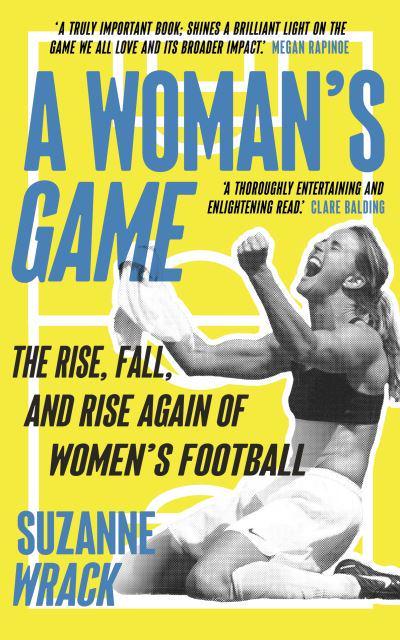
1. Suzy Wrack A Woman's Game: The Rise, Fall and Rise Again of Women's Football
On the beach. England European Champions. A blissful summertime mix. And to add depth, context and brilliant ideas to the feel-good factor there's none better than one of the pioneers of the new (women's) football writing, Suzy Wrack, in her debut and most timely book.
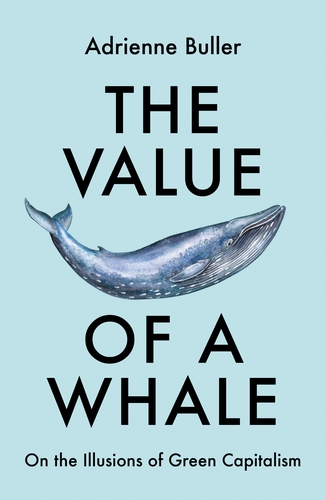
2. Adrienne Buller The Value of a Whale: On The Illusions of Green Capitalism
Adrienne Buller is part of a new wave of economists producing radical ideas in stark contrast to Keir Starmer's mantra ' Labour's mission in government will be economic growth'. With the climate emergency already upon us The Value of a Whale expertly explains why 'growth' isn't enough, not nearly.
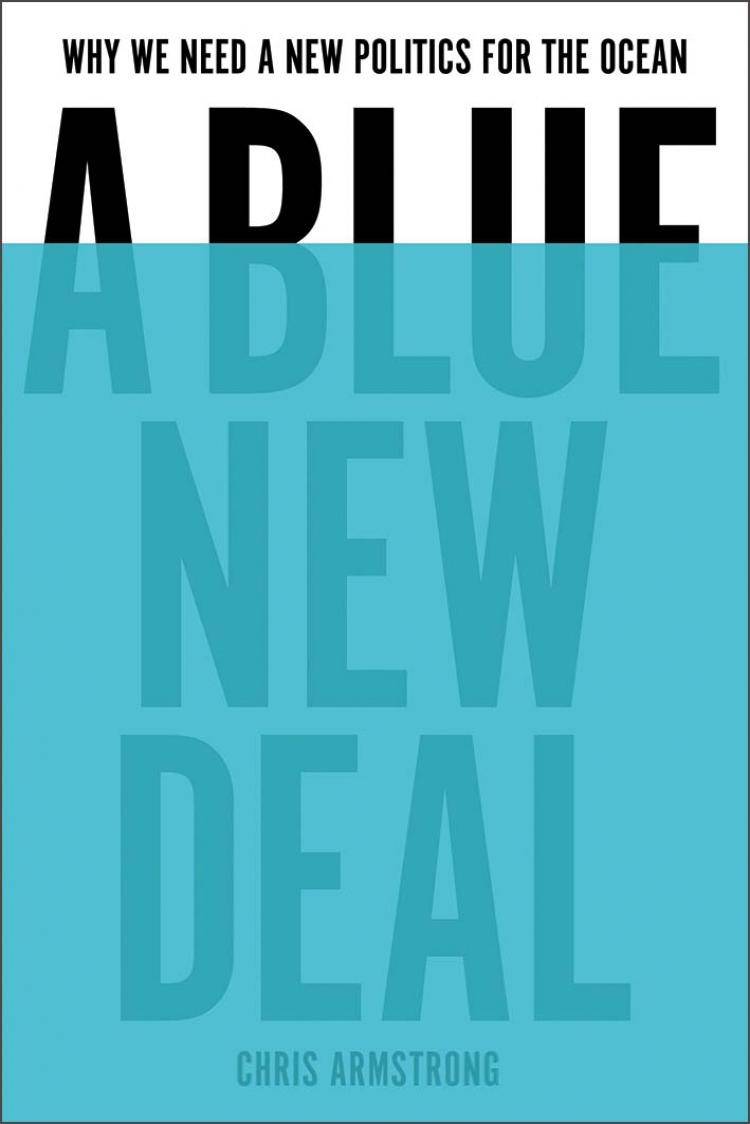
3. Chris Armstrong A Blue New Deal: Why We Need a New Politics for the Ocean
For the lucky ones there's no better place to spend August hols than on a beach in the sunshine. Thoughts of what rising sea levels will do to devastate coastal communities and rising summer heat as a threat to our health and environment not the nicest, if necessary, way to break up the sunbathing and swimming. A Blue Deal is the antidote, an incredible read on how by reversing climate change coastal communities could be regenerated.
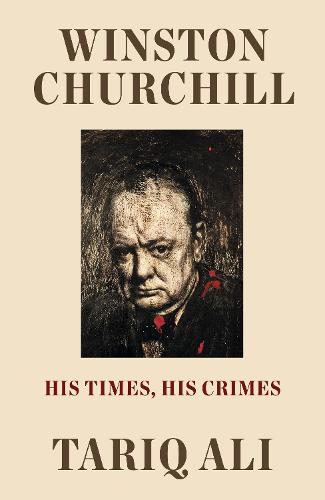
4. Tariq Ali Winston Churchill: His Times, His Crimes
'We shall fight on the beaches' was amongst many great Churchill lines a million miles away from the sound bitery of modern politics.But there's Churchillian myth-making too on an industrial scale, Tariq Ali provides a demolition job that some will disagree with but none should entirely ignore.
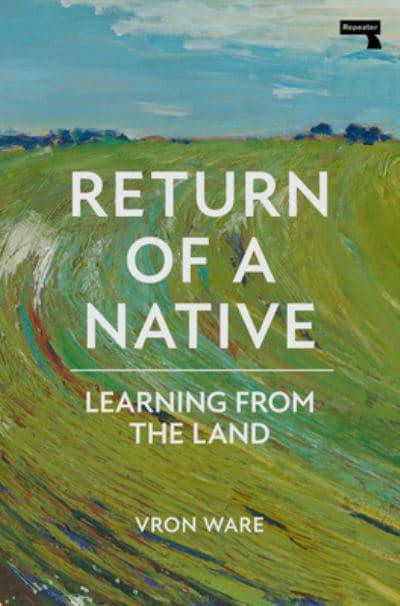
5. Vron Ware Return of a Native: Learning from the Land
For those who prefer a rural spot away from the sand and the sea Return of a Native is an insightful read of how the particularities of the English countryside have become key to constructing Englishness. Combining the ecological and the political this is a book to provoke rethinking well beyond a holiday read.
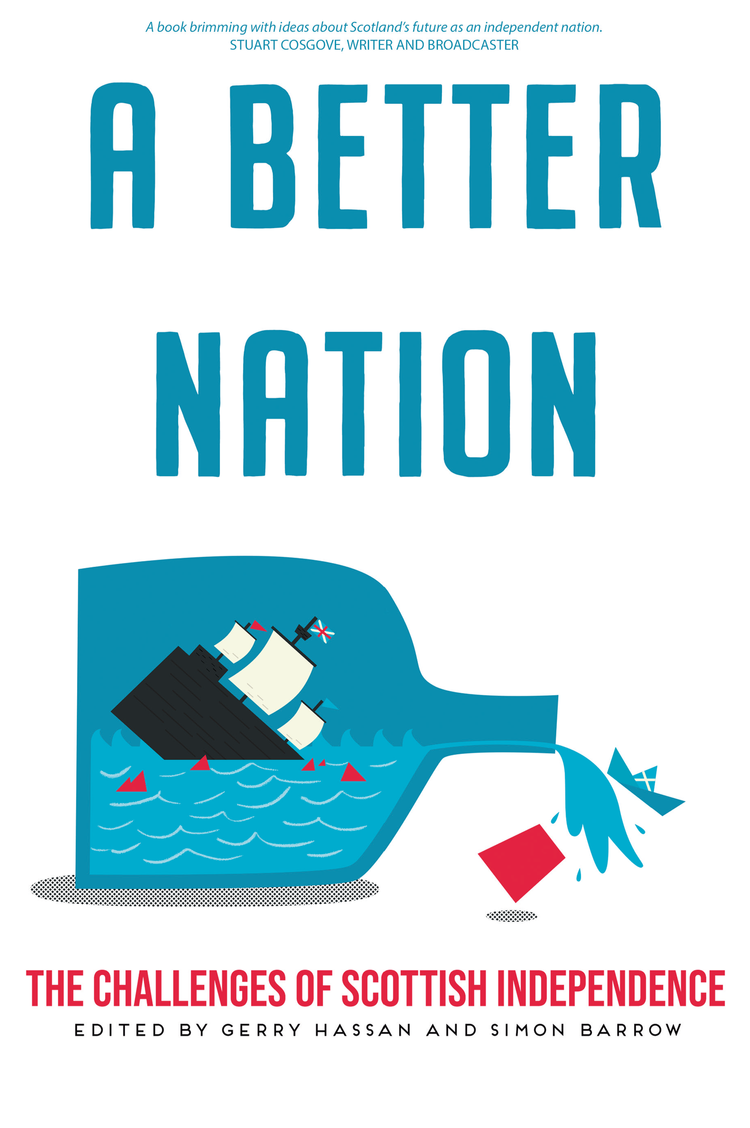
6. Gerry Hassan and Simon Barrow, Eds A Better Nation : The Challenges of Scottish Independence
The near-perfect summertime city break is surely the Edinburgh Festival. Edinburgh is also where the re-established Scottish Parliament is located. Since it was the momentum towards independence has been in fits and starts but it will come. Gerry Hassan and Simon Barrow's edited collection of essays is the best possible survey of a shift a tad more important than fretting over whether future festival visitors from the rest of the UK (sic) will need to pack their passports.
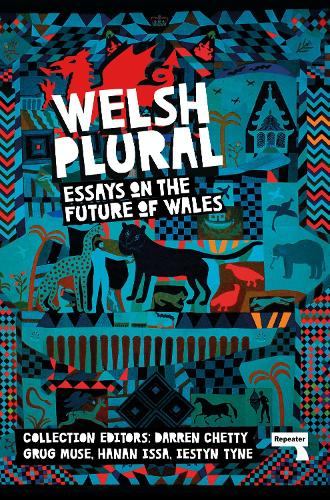
Across coastal Britain's holiday hotspots 'holiday cottages', second homes, serve to exclude local populations from much needed housing. In Wales, uniquely, resistance to this is combined with a nationalist dimension. Hateful ethno-nationalism? Welsh (Plural) helps us to understand why it is anything but, a nation rediscovering and reinventing itself as 'not British'.
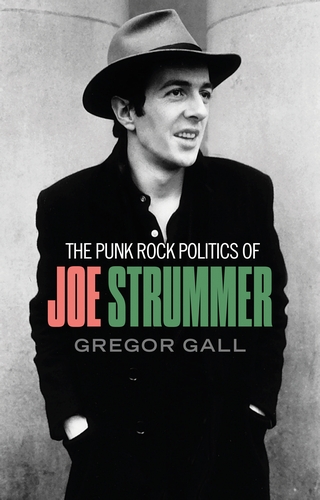
8. Gregor Gall The Punk Rock Politics of Joe Strummer
As summer draws to a close September 2022 will mark the 40th anniversary of the break-up of Joe, Mick, Paul and Topper AKA The Clash. For those of a certain age and inclination it was this foursome who provided, and still do, the soundtrack to our lives. Gregor Gall brilliantly locates the music Joe Strummer provided for the band in what he calls 'punk rock politics' a mix of radicalism, resistance and rebellion, and to dance too.
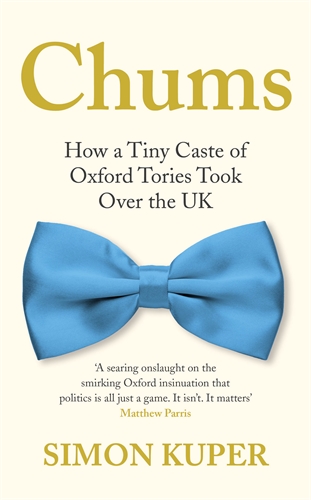
9. Simon Kuper Chums : How a Tiny Caste of Oxford Tories Took Over the UK
Simon Kuper's first book Football Against the Enemy came out in 1994, part of the surge in 'new football writing' it stood apart mixing travel and politics with action on the pitch. A very fine read as has all of Simon's writing been since. Chums is a bit of a departure, no football. Yet it not for one moment disappoints, rather the best ever written dissection of the formation for what passes as the modern Tory Party's leadership.
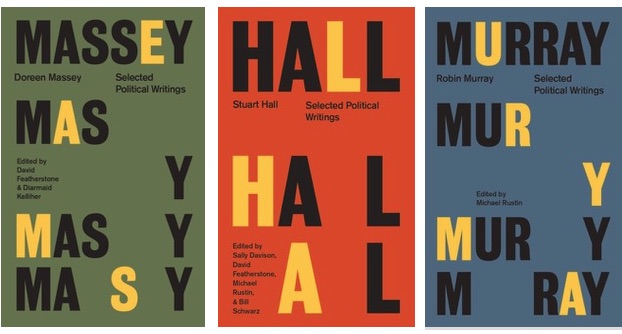
If room in the suitcase or rucksack is at a premium this is the book to pack, or if possible three books. Publishers Lawrence and Wishart have produced the perfect reads to take us away from the next-to-no-ideas Keir Starmer Labour Party to an ideological place where ideas are positively overflowing. Posthumous collections of a triumivrate of key writers from the magazine Marxism Today. Doreen Massey, Stuart Hall and Robin Murray's political writings, no better preparation for after a summer of discontent the change that must follow.

On the beach and ever after wear the incredible memories of an unforgettable July 2022. Philosophy Football's unique T-shirt with match details of England's victories versus Austria, Norwaty, Northern Ireland, Spain and Sweden. Then after 120 minutes England 2 Germany 1, 'Lionesses' swapped for CHAMPIONS. From here
Note No links in this review are to Amazon. If buying books from corporate tax dodgers can be avoided, please do.
Mark Perryman is the co-founder of the sporting outfitters of intellectual distinction aka Philosophy Football
A game of two halves
26.07.22
Mark Perryman of Philosophy Football describes how Euro 2022 is threatening to be a tournament where masculinity is on the losing side.
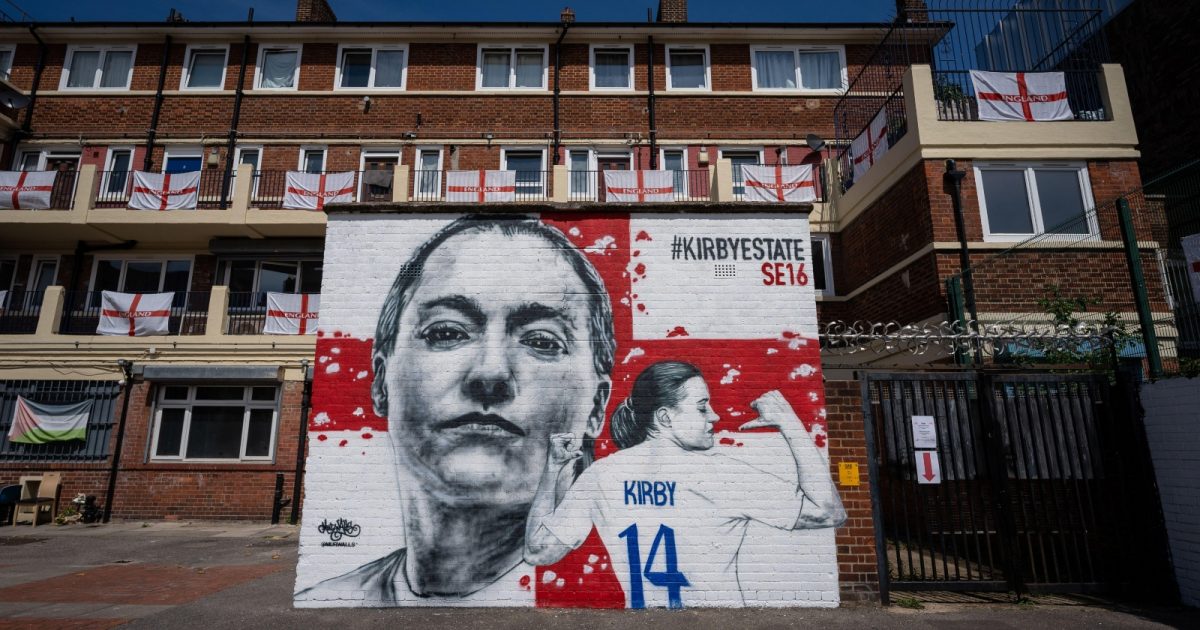
England? Ingerland! I've written a book (well several actually, articles, interviews, TV and radio broadcasts) on what that one additional syllable symbolises. I thought I knew as much as there was to know, until last Wednesday, England 2 Spain 1, Euro 2022 quarter-final.
My knowledge, such as it is, is partly fandom. From Euro 96 to Euro 2012 I went to just about every England game, home and away, every tournament. That last game, England's exit on penalties to Italy is ten years ago now but the incredible experiences as a travelling England fan have never left me.
Partly activism too. When I first started out England fans' reputation was fearsome. We were the least welcome guests at every Euro or World Cup. Every effort to change this failed, including for Euro 2000 a campaign I helped dream up' Football Yes, Violence No' that failed spectacularly. Why? Because by starting out with a negative aimed at our own fans it threatened to turn into a self-fulfilling negative, and across Holland and Belgium before England went out at the Group Stage, did.
But I learnt a lesson too, to find the elusive positive majority of travelling England fans start with what we all enjoy most, almost as much as the football, the travel. I helped set up LondonEnglandFans travel forums, which grew into a loose network of similar groups across the country. And on trips we'd organise fan-friendly activities, often backed by the British Council, supported by the FA but entirely fan-led. `Do-gooders? Nope. But we weren't sorry to be doing some good. With everything from fans matches against the opposition fans via visits to a local brewery to running a football quiz for schoolkids we reached well beyond England fans' close-to-non-existent constituency of do-gooders to a broad cross selection who just fancied adding an experience bordering on the unique to their trip. And in the process boosting the reputation of an England we were all immensely proud of. A pride that comes with the England fan territory.
And partly intellectual, too. The only books written about England fans were what the late Steve Redhead brilliantly called 'hit 'n tell' including the Brimson brothers string of best sellers and bizarrely written by - tho' a very good book - Granta Editor Bill Buford's Among the Thugs. Meanwhile a growing literature on all things Englishness studiously ignored football. After every tournament from France '98 onwards I'd put together a collection of essays from our fans, opposition fans, our hosts telling an entirely different story to the 'hit 'n tell' brigade or the ghosted players and managers' tournament diaries. And uniquely making the connection between the bi-annual summer of England festooned in St George with the breaking up of Britain.
In 2012 I went to my first women's international. I'd been working on the football tournament at the London Olympics and scored tickets to the women's Wembley Gold Medal match USA vs Japan. It was a kind of football I'd never seen before, fastmoving and skilful yet without much of the brute physicality of the men's game. But most interestingly the crowd which as Mark Steel put it after the women's France v Japan Semi 'the fans were so gleeful they'd be evicted from the ground at an England men's match for being too amicable.' It was the sane at the Final, and then some. Does this mean the first embryonic mass support for international women's football here in England was out for a good time? Well yes, and hurrah to that. But not at the expense of their footballing values. When the loathsome, corrupt, autocratic, and that's putting it nicely, FIFA President Sepp Blatter marched on to the pitch to award USA their Gold Medals he was roundly, universally booed from the stands. Take that for your decades of platitudes about a game of equality Blatter.
Back in Lewes where I live I would occasionally go to watch Lewes Womens FC which under the extraordinary leadership of Karen Dobres has become 'Equality FC'. Much as I valued the iintent I'll admit I didn't entirely get it. Until Lewes, drum roll please, played the newly formed Manchester United Women's team. The crowd was big, full of passion, the result meaning everything but the fact it was Lewes up against United's women rather than their infinitely better known men, frankly irrelevant in the heads of fans of both teams there. Mmm.
Most unlike me I was a tad disorganised getting tickets to the Women's Euros. Since stopping travelling summer tournaments just haven't had the same thrill, being there, over there, nothing else comes close. But when early Saturday morning an email from UEFA, I must have registered for Euro 2022 tickets years ago, offering late availability for England's Quarter-Final vs Spain ust down the road at Brighton's ground, well I couldn't resist.
The week previous, England's game against Norway I'd noticed something interesting of those gathering to head out of Lewes on the ten minute train journey to the game. Unsurprisingly lots of family groups, mums and dads, with their daughters and a fair few sons too. But also young lads, not of the overly laddish variety, but in their England shirts, an England tournament game too good to miss. It's women's football? What the hell. OK ten minutes on the train, cheap tickets, £20, decent seats too, and not, as I was to discover, so difficult to get hold of either. But despite all this it's not that long ago, the Women's Euro 2005 in England to be precise, this would have been unimaginable.
And more changes dawned on me at the Quarter Final too. The air of menace around England home and away can be exaggerated. But here as we crowded into the train and disembarked on to the platform at Falmer it was entirely absent. A football crowd with if anything women and girls in the slight, though not overwhelming, majority quite unlike any other football experience,. Not just at the ground, but in the pubs, workplace and other conversations, lets be honest everything about football as we know it is decidedly masculine. From boomers to zoomers, Generation X to Generation Z this has hardly changed, not one bit.
In so many ways at England v Spain it had. This isn't just about demographics, the politics of representation, this is about cultural change. Big brawny blokes wearing England's training strip combo of pink and bright pastels. The black female house DJ playing dance numbers and women fans all over the stands getting up and dancing. The feminised singalong to Oasis classic Wonderwall, turning a lads anthem back into what it was written as, a love song. The England men's band tub-thumping doing their best to rouse the crowds but a fairly obvious sigh of collective relief when they shut up and there was something else to sing, and dance, along too. This was a crowd here for an England win and enjoy themselves in the process. The so-called 'National Anthem', it isn't, observed but hardly sung with the usual martial gusto. No chants about World War Two, the IRA, the Falklands or Al Qaeda. The last time England met Spain in a Euro Quarter Final, 1996, the Piers Morgan edited Daily Mirror dragged up Francis Drake's sinking of the Spanish Armada to beat up the opposition. And best of all no endless singing of It's Coming Home once England went 2-1 up.
But no Mexican Waves, all too common at Wembley for England men's games. either. This was a crowd who knew how to party, but knew this meant inventing our own traditions, not importing, or having imposed upon us, other's. Sometimes the commodification of fandom did grate. Cards saying 'GOAL" to hold up when England score, where did those come from? Is it really necessary to spell it out E-N-G-L-A-N-D H-A-V-E S-C-O-R-E-D. And the corporate equality-washing smells of a desperation to cover their selling message. From Volkswagen, 'Not Women's Football - Women Play Football'. Really?
Football for all, getting there but not, as it's been observed during the tournament, not yet. English women's football is overwhelmingly white. But this is less about a numbers game than the social construction of sport, any sport. Women's football in England is nowhere near as diverse as the men's game - tho' this is distinctly partial too, how many black and minority ethnic managers in the Premiership and Football League anyone? The women' s game has only recently become professionalised, even more recently paying the kind of wages and providing the kind of platform to become aspirational. The playing side of men's football has never been gentrified unlike every other part of the game, with few exceptions it remains resolutely working class, including the Black and mixed race working class, but not other ethnic minorities. Interestingly a different process of scholarships, and since 1995, professionalism has created a much more multicultural England rugby team than hitherto. Diversity is a product of such structural changes not, even if England win the Euros, the myth of so-called 'role models.'
But on Wednesday night such thoughts s could be put on one side, for now. A change was underway, shaped most importantly of all by the performance on the pitch, both teams. This was as thrilling and nerve-wracking as the knockout stages in a Euro or World Cup gets. Out of this world fitness, astronomical levels of commitment, sky-high skill on the ball. Hard fought, that was obvious even from my position in the stands, but not dirty, likely to cause injury. Yellow cards not quite non-existent but certainly less frequent, and little dissent when issued, compared to the men's game. No medical aid required on the pitch until the 80th minute or so testament to a different kind of physical contest, more about being fitter, faster, more concerned with what can be done with the ball than simply stopping the other lot, dead.
Anyone watching the game via a squint and perhaps oblivious to the England team's preponderance of blonde pony tails would have had no idea this was England women rather than men down on the pitch providing the most exciting 120 minutes of football imaginable. Seated in the stands surrounded by a passion that was both highly visible and loudly audible yet free of any boorishness, triumphalism and hatred of the other lot we might think this is an England we want to be part of, I certainly did, The crowd less toxic? Yes. Down to masculinity? Almost certainly. The kind of male anti-social behaviour that has to be endured every Saturday night city and town centres come closing time yet never makes the news given a platform when occurs at football. The vocabulary of 'hooliganism' serves to obscure this salient, and ugly. fact. Has the support for England women this summer meant all these aspects of masculinity have not been as central to the game as it usually is? Yes. Perhaps rather than rearranging pronouns there's something more profound at work here. Wednesday night was a remarkable achievement in so many ways. Just imagine if they now go on and win it. But win or lose to effect change the processes underway have to be recognised and understood. England vs Sweden, tonight 8pm C'mon Ingerland .
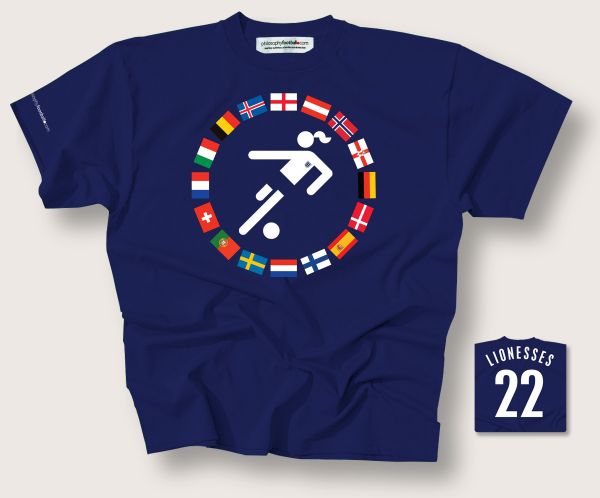 Mark Perryman is the co-founder of the self-styled 'sporting outfitters of intellectual distinction' aka Philosophy Football. Our Euro 2022 Lionesses T-shirt is available from here
Mark Perryman is the co-founder of the self-styled 'sporting outfitters of intellectual distinction' aka Philosophy Football. Our Euro 2022 Lionesses T-shirt is available from here
Books to Brighten up a Summer of Sport
21.06.22
Seasons come, seasons go Philosophy Football's Mark Perryman finds a heap of sports books to provide a summer's worth of sporting hope and healthy goodness
I first came across Michael Calvin via his extraordinary one season biography of the Millwall FC first team Family: Life, Death and Football. Not since Pete Davies' peerless All Played Out account of the sporting summer of Italia 90 England squad had a writer revealed in such exciting emotional detail the making of a football team. After Family Michael has become the pre-eminent chronicler of the state of mod£rn (sic) football, in many ways his latest Whose Game is It Anyway? Football, Life, Love & Loss written at the height of the Covid-19 crisis, is the culmination of this chronicle. For readers of fine critical football writing lets hope not.
Ryan Baldi's The Dream Factory: Inside the Make-or-Break World of Football's Academies is a tightly focused piece of work, and that's no criticism. Almost all successful Premier League clubs depend on the success of their academy system, developing the most talented local recruits from the age of nine years. Yet what separates the tiny percentage who make it into the first team from the overwhelming majority who don't? This book not only seeks to find the reasons why but provides a showcase for alternative models; internationally, lower divisions and non-league towards turning raw talent into finished 'product'.
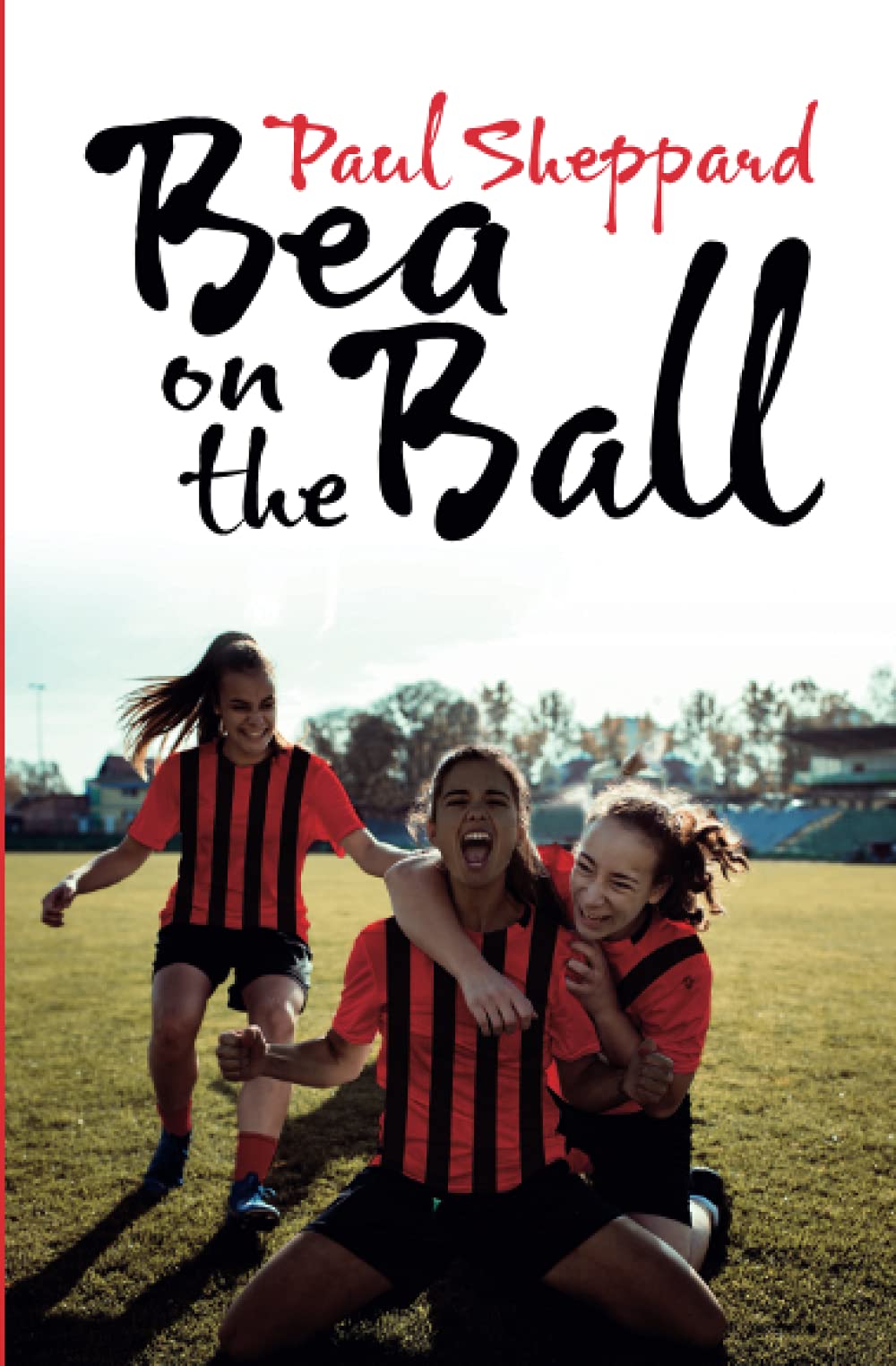
The fantasy of 'I could have been a contender if only...' fuels the fandom of many male fans as they swap the youth football of their teenage years for a life of watching the game from sofa, barstool or the lucky few, the stands. In the 2020's that same teenage fantasy is increasingly shared by teenage girls too, with pathways to playing more open the women's game is centred on playing rather than the simply watching of the men's game. Perfect to accompany a generation of girls being inspired by the Women's Euro 2022 Paul Sheppard expertly turns the kind of excitement this is sure to generate into a superb young adult novel Bea on the Ball in and around the very real experience and achievements of Lewes Women's FC. Unashamedly inspirational, and a right fine read because of it.
The wider world of women's football is superbly covered by the collection Football She Wrote ranging from the historical and club-specific to the playing side, fandom and the cultural impact of the fast-growing popularity of the women's game. More of this writing please, there is so much to learn from it whichever 'half' of football we follow. Testament to this is The History of Women's Football by unarguably this half of the game's pre-eminent historian, Jean Williams. With England as hosts and pre-tournament favourites Euro 2022 could be just the spur for an avalanche of new writing on the women's game. Yes please.
For the men's game it will be a short summer off ahead of the November Qatar World Cup. A time to reflect on how football remains most definitely a sport of the oxymoronically two unequal halves, gender one part of the scales of inequality that rule the game, women's football vs men's one binary. Another is league vs non-league, to which my answer is simply there's nothing 'non' about non-league. Aaron Moore's Fields of Dreams and Broken Fences : Delving into the Mystery World of Non-League Football provides hope that here more than anywhere another football remains possible.
A really bad choice for a title " I Hope You Die Of Cancer" : Life in Non-League Football shouldn't obscure the brilliance of the latest in 'The Secret...' genre, first made famous of course by The Secret Footballer. Co-writer Marvin Close enables the anonymous player to delve deep into the realities of the part-time players with a full time commitment to their sport, the harsh reality of being outside the league with hope for rising thru' the tiers in equal measure makes for a read quite unlike most player not-exactly tell-it-alls.
Park Life : Four seasons of Rhondda football by Peter Roberts tells-it-all across an entire valley's Sunday League footballers. The Rhondda, in the 1920s and 1930s the heartland of a very distinctive Welsh communism, an educated working class militancy that persisted right through to the miners' strike of 1984-85. Today the valley is a crucible of post-Thatcherite deindustrialisation, yet still a 'red wall' with a splash of Welsh civic nationalism. A place where the grassroots game survives if not thrives, most of all, as Peter Roberts expertly recounts, it is a part of, not apart from, the community where the game is played.
A very different tale is told by Martin Calladine and James Cave in their exposé of a book Fit and Proper People : The Lies and Fall of OwnaFC a book that reads more like a thriller, for avoidance of doubt this is meant as a compliment, than an account of club ownership gone wrong. It is close to being every fans' dream, to own a club, to put the world of football to rights. 'OwnaFC' was set up to feed that dream, but as the exposure details it proved to be an unscrupulous means to first exploit the fantasy, and then kill it off. All in the cause of making a quick buck at others' expense. Is another football possible? It sometimes seems not, the end of season parade of the 'big clubs' into the cartel the Champions and Rich Runners Up League resembles has pretty much put paid to that dream. But that doesn't means its impossible, and for any convincing read the all-time classic on the subject, Jim Keoghan's Punk Football: The Rise of Fan Ownership in English Football.
Scattered examples of fan ownership remain a vital and practical inspiration but remain very much the exception. How to venture towards full-scale dismantlement of the business(sic) of sport, specifically the outlier in this process, football? Joe Kennedy's Games Without Frontiers, now in a new and expanded edition, mixes the doing, pick-up games of surprising seriousness of intent, the watching, with one notable exception, lower division but mainly non-league, and the thinking, Joe mixzes it al upl to provide a quite sublime mix of enquiry and explanation. Bordering on the unique this is a book of revelation and in the right hands, or should that be the wrong hands, the revolution that every sport needs. Read, relate, revolt.
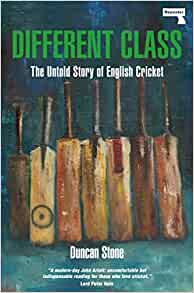
Any kind of serious understanding of why sport is such a source of both unbridled joy and unscrupulous exploitation begins with a recognition that all sports are socially constructed. Or to put it another way, to stand in opposition to the mantra 'Just do it' because sport is never 'just' done. Once cricket would seamlessly take over from football and rugby as the pre-eminent summer team sport. Is that still true? Duncan Stone's magnificent Different Class: The Untold Story of English Cricket stands in the tradition of CLR James and Mike Marqusee, writers who place the social construction at the centre of understanding this most socially constructed of sports. Duncan achieves this via cricket as recreational, far beyond the idiom of the 'village green' too, rather than the professional county and test cricket game. An original and much needed reassertion of the sport's roots in the era of the Indian Premier League and the 'Hundred'.
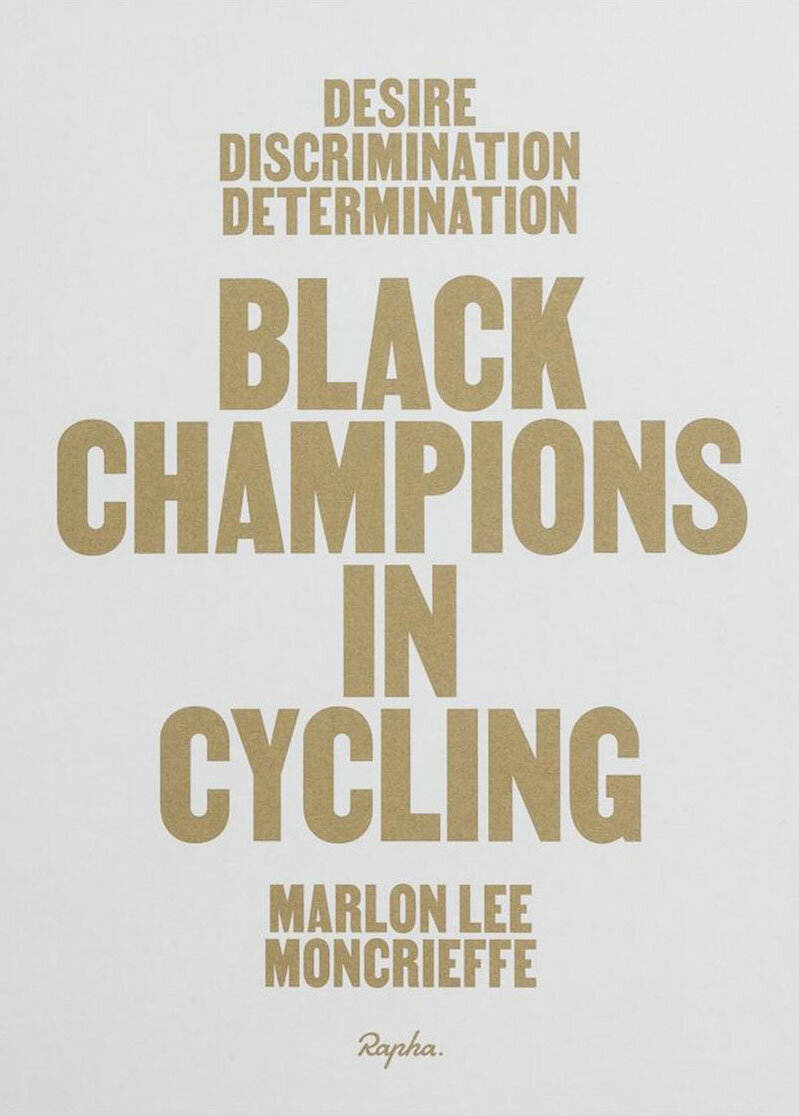
Bradley Wiggins' first British winning of Le Tour helped elevate this most Francophile of events into a major part of the British sporting summer. Yet British cycling remains the whitest of sports. Desire, Discrimination, Determination : Black Champions in Cycling by Marlon Lee Moncrieffe is a beautifully designed book full of angry purpose towards understanding why? An admirable publishing venture too, published by the go-to producer of the most fashionable cycling kit imaginable, Rapha. Mixing history, analysis, and cycling culture this is an incredibly innovative and important book.
Post Wiggo, a cycling boom, mirroring in lots of ways the early 1980s running boom. Elite success but crucially in sports socially constructed to maximise mass, mainly recreational and non-competitive with no rules to speak of, no expensive facilities requited, kit not too pricey either. All, more or less to the good. Shane Benzie argues however there's a bit more of the 'less' than we might assume. His book The Lost Art of Running travels the world to rediscover the most basic exercise on earth, putting one foot in front of the other at ever increasing speed over ever-lengthening distances. A book to inspire, and for the ambitious to seek to follow in the footsteps provided as well. Bright summer mornings, light long into the evening, sunshine and a cool breeze, what excuse can there be found not to exercise? For the vast majority, too many to mention.
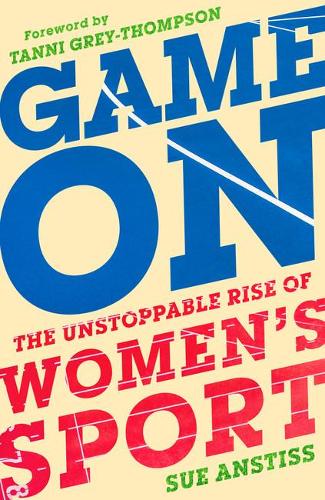
There are many causes of this, in part an explanation lies in how sport's history shapes its present. Definitive proof of this can be found in Sasha Abramsky's revelatory read, Little Wonder or to give the book's full title 'the extraordinary story of Lottie Dod, the world's first female sports superstar'. Extraordinary and a half, Olympics Archery gold medallist Lottie also won both Wimbledon and the British women's amateur golf championship, and played hockey for England. So why have precious few heard of Lottie? 'Hidden from history' as generations of feminist historians have taught us. Lottie's era was the early twentieth century Let's Get Physical : How Women Discovered Exercise and Reshaped the World by Danielle Friedman is focussed on the 1960s, the era of second wave feminism. The link between exercise and liberation may not be immediately obvious, Danielle ensures they become so while never surrendering to the self-absorption a politics founded on our bodies, ourselves can on occasion pander to. Sue Anstiss is never going to make that mistake, campaigner, podcaster, Sue helped found both the Women's Sport Trust and Women's Sport Collective and is now heading up a new outfit, Fearless Women, to drive the changes women's sport still needs. Game on : The Unstoppable Rise of Women's Sport brings together Sue's vast experience of how sport (mis)treats women and overflows with ideas to both reverse this and to the benefit of all, women, and men.
To suggest it isn't 'just' women who suffer from how sport has been constructed to the benefit of some but not all isn't to sideline other exclusions but to seek an overarching understanding that takes each and every exclusion seriously, equally. There's few better starting points towards this than Sweat : A History of Exercise by Bill Hayes, a social history of the entire philosophy, culture and practice of exercise. No good society should be without the ambition to make exercise as freely, widely and pleasurably available as possible, the absence of which across the UK is startlingly obvious every summer. Bill helps us to understand why societies fail to fulfil such a modest but necessary ambition and produce instead obesity and physical inactivity in abundance, a 'summer of sport' as something to watch from the sofa or wear as a fashion accessory rather than as the advertising slogan (irony alert) would suggest ' just do it'.
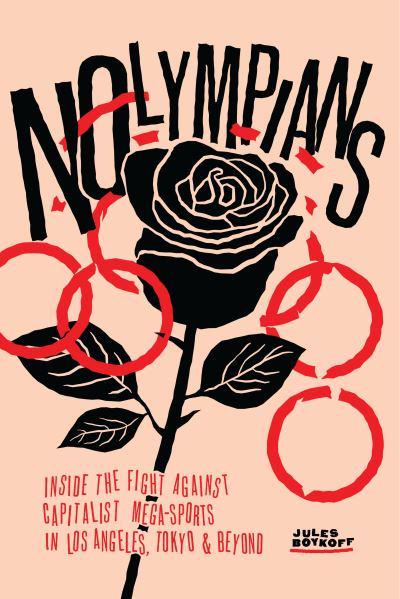
Since the 1984 Los Angeles Games the commercial monster that the Olympics became has sought to solve such societal failings via the twin Olympian myths of legacy and role model. Few writers have done more to dismantle these delusions than Jules Boykoff, as the tenth anniversary of London 2012 approaches this July and every claim made of what those Games would achieve has been proved to be an absolute fiction Jules' latest book NOlympians : Inside the Fight against Capitalist Mega-Sports in Los Angeles, Tokyo and Beyond should be required reading for every politician, sports administrator, media commentator who cheerleaded for what 2012 would achieve in the, probably forlorn, hope they won't be fooled again. Except they will, my advice is to approach any legacy claims made by Birmingham's Commonwealth Games via attendant politicians and media with extreme caution. If we are ever to overcome these self-defeating sports mythologies the question we should really be asking is 'What is Sport for?'
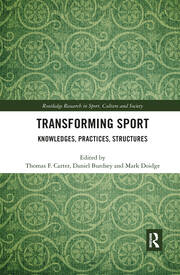
Two academic books which prove hugely helpful towards finding some answers are Transforming Sport edited by Thomas F. Carter, Daniel Burdsey and Mark Doidge, and Adam Kadlac's The Ethics of Sports Fandom. Both books take a multi-sport approach.Transforming Sport unpicks the power relations that serve to structure, in most cases limit too, the otherwise joyful potential of sport as a means to human liberation. This unfulfilled potential is defined, quite rightly in my view, by most of the book's contributors as the ability, or inability to 'do' sport. Adam Kadlac focusses instead on the fan, the spectator, for whom joyful potential is all about what is being watched, a potential Adam locates not simply in the joy of our team winning rather than losing but the broader views of society shaped via being a fan. There is no doubt this exists though the extent to which such consciousness is subject to commodification, the obvious example being a 'corporate anti-racism' in and around football, which means sadly that by and large another potential of sport, Adam's consciousness-shaping, remains unfulfilled.
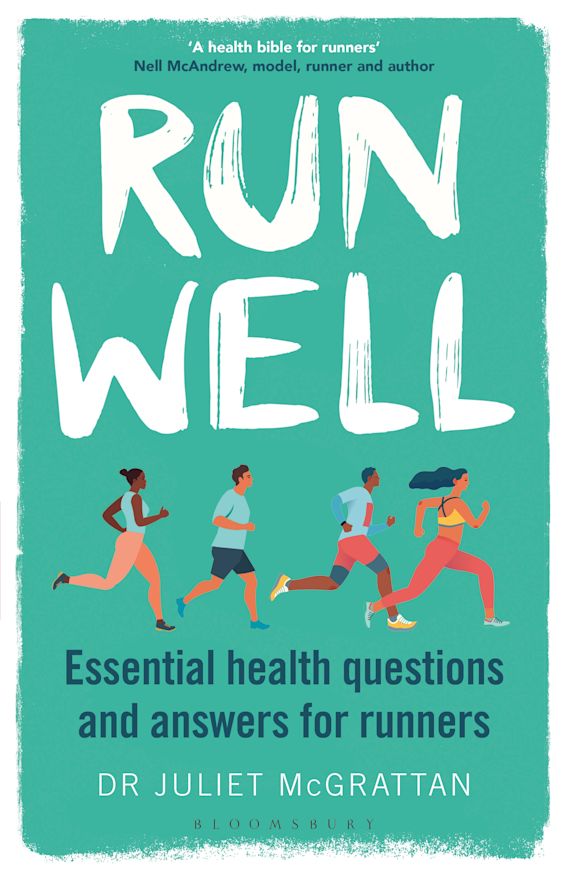
In facing down the failings of modern sport to engage the 'doing' part, ever-decreasing levels of participation continue despite ever -increasing TV ratings for major sporting events, there is a tendency towards an undiluted instrumentalism to encourage those yet to 'just do it.' This is understandable but if it was as simple as get fit = get healthy those low participation levels would never have sunk so low in the first place. Juliet McGrattan's Run Well : Essential Health Questions and Answers for Runners is an admirably comprehensive read for the keen runner and helps readers avoid many, including unexpected, pitfalls. As a runner myself I certainly learnt a lot but there remains a mythology of running and health. Knees are the obvious ones, but more generally increased mileage almost inevitably reduces resistance to viral infections. Running is about a lot more than health, and for most competition too, its about freedom, time we can call our own, the sheer pointlessness of it. Perhaps a more appealing connection to be made is with the pleasures of eating. This may seem counter-intuitive but most who do sport aren't wafer-thin. In fact its another instrumental myth of exercise, it makes us hungry, we compensate with over-eating in the knowledge we've exercised. There are infinitely more efficient ways to lose weight than exercise. Instead of ignoring this there's a very welcome emergence of books that fuse the joys of exercise with a celebration of what to eat afters, before too, and I stress recipes to enjoy rather than glorified calorie counts. Ultra runner and chef Billy White's Eat, Run, Enjoy gets that mix right in the title and like any good runner doesn't look back, via extraordinary photography, runners and recipes, those runners recounting how much they enjoy their food, plus great meals to cook from breakfast to bedtime snacks. For those who prefer to exercise on two wheels Alan Murchison provides the meals to accompany in The Cycling Chef : Recipes for Performance and Pleasure. The mix, rewarding both body and taste buds, is the perfect antidote, everything from breakfasts and broths to smoothies and suppers, not four words usually associated with 'just doing it', more's the pity.
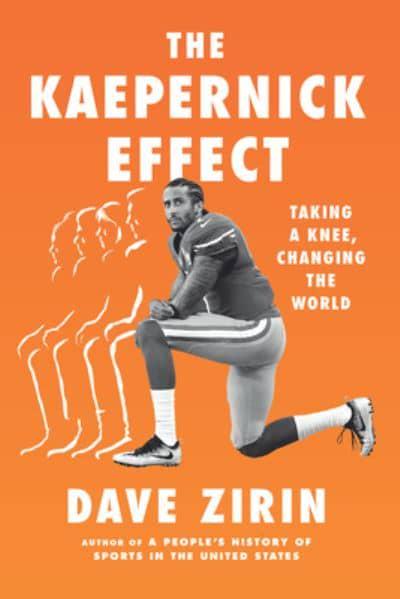
There are precious few sportswriters in the UK media like Dave Zirin, on occasion Jonathan Liew comes closest, or in that hinterland of academia-media David Goldblatt . Dave Zirin combines being an unapologetic fan, broadcaster and writer, and unashamedly political, specifically of a leftwing inclination. Older readers might well at this point recall, and sorely miss, the late Mike Marqusee who would effortlessly tick all those boxes too. Dave Zirin's latest The Kaepernick Effect : Taking a Knee, Changing the World (available from September in paperback) applies all this to unarguably the biggest social movement in sport of the early twenty-first century, 'taking the knee'. What Dave does is situate Colin Kaepernick's original action where it belongs, as an act of rebellion, widely reviled and resisted by both sporting and political officialdom at the time. Yet at a popular, black athlete-led, level a popular resource of rebellion that connected with a global audience outside of sport to symbolise anger and change sparked by the police murder of George Floyd. Of course it is a good thing that this in turn moved the superstars and rulers of sport to action too but what Zirin teaches us is that withoutthe roots in Kaepernick's rebellion the ever-present danger is sanitisation, incorporation and in the end inaction. My top choice of a book of what may or may not be a long hot summer weather wise, but to heat up the dull sobriety of both politics and sport I'm certain there's no better weapon in our hands to read.
Mark Perryman is a research fellow in Sport and Leisure Culture at the University of Brighton and co-founder of the self-styled 'sporting outfitters of intellectual distinction' aka Philosophy Football
Memories of Mariupol
Philosophy Football co-founder Mark Perryman remembers Mariupol in happier times, Euro 2012
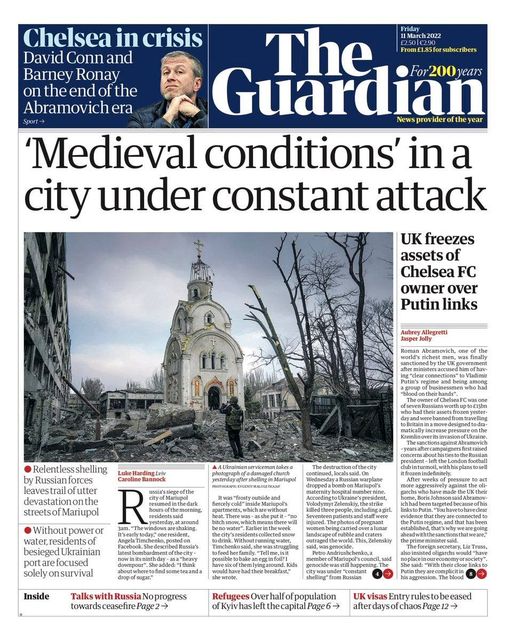
A decade ago, early 2012, me and a bunch of 50 or so England fan friends were looking for where to base ourselves, and our coach driven by our mate Dave Beverley all the way from Scunthorpe, for that year's Euros in Ukraine
The trick with a Euros or World Cup is not to stay in the host cities where costs sky-rocket but within 50-60 miles, hence Dave's coach to get us around.
We happened upon Mariupol, to be honest none of us had ever heard of it but Ukrainian contacts highly recommended it.
50 miles south of Donestk where two of England's group games would be, cheap hotel, beach with a bar, sunshine. Touristy things too like an hisriric church we visited. Perfect, and so it proved.
2022 Mariupol is front page news, bombed back, including that church, into the Middle Ages. I'm a solid internationalist. I boycotted South African goods for years, I was on the big 2003 anti-Iraq war protest, through Philosophy Football we've raised funds for a material aid convoy, one of the lorries driven by Hugh Tisdale co-founder of Philosophy Football, to break the siege of Gaza. But I'll be honest its Ukraine that has moved me like nothing else.
I grew up politically thru' the second cold war. US Cruise Missiles vs USSR SS-20s. Then Gorbachev offered the promise of something different, a dream that's ended with the nightmare of Putin and oligarch power. This feels like not so much the Cold War revisited, but a hot war.
And this is Europe, never mind the EU, this is my continent. Thru' following England I've been to not just Russia and Ukraine but Poland, Hungary, Estonia, Moldova, Finland, Belarus, all those countries most embroiled and threatened by this deadly conflict. This feels like home.
And for three weeks Mariupol was our home. When I see the pictures of this city reduced to rubble, it makes me think of my parents, father, RAF, and mother Royal Navy, returning from the war in '45 to Wallington in yhe south of London suburbs and roads of houses, schools, hospitals, workplaces bombed too, and hundreds of thousands made homell the same experience across much of urban and suburban Br,itain. And now seven decades later Mariupol the same, Kharkiv where we stayed on route to Kyiv, Kyiv itself, if anything worse. Lviv too where after the , in those days inevitable, knockout on penalties in the quarters, the 50 of us in our coach passed thru' the border checkpoint to Poland that today tens of thousands of Ukrainian refuges are queuing up to leave through, forced against their will by the Russian invasion to leave their country.
I may never be able to visit Mariupol again, but I will never ever forget or forgive what Putin and his oligarchs have done to the city.
Stop the War? Stop bloody Putin!
Philosophy Football is raising funds for Ukraine aid and solidarity via T-shirts and badges here
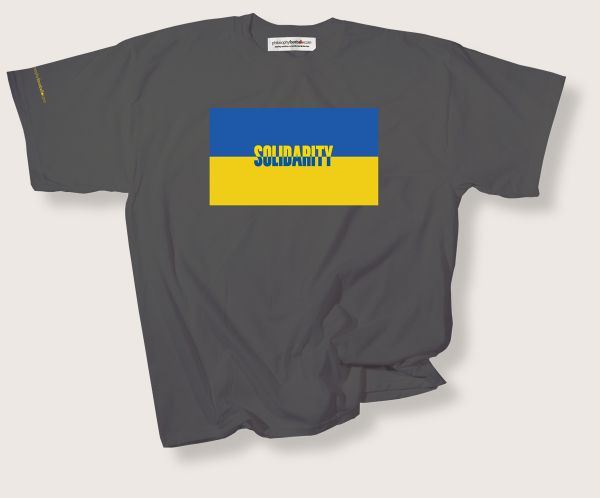

Twelve Books for Twelve Days of Christmas
20.12.21
For the season of goodwill Philosophy Football's Mark Perryman selects books to tide us over into the New Year, and beyond
Apart from bah humbug miserabilists those of all faiths and none manage to find Christmas a time to give, and to receive. With this in mind twelve books for the twelve days of Christmas, however to get them all read by the time Twelfth Night is out will most likely leave the reader intellectually exhausted so a slower pace towards an early Spring is advised for all but the most committed readers.
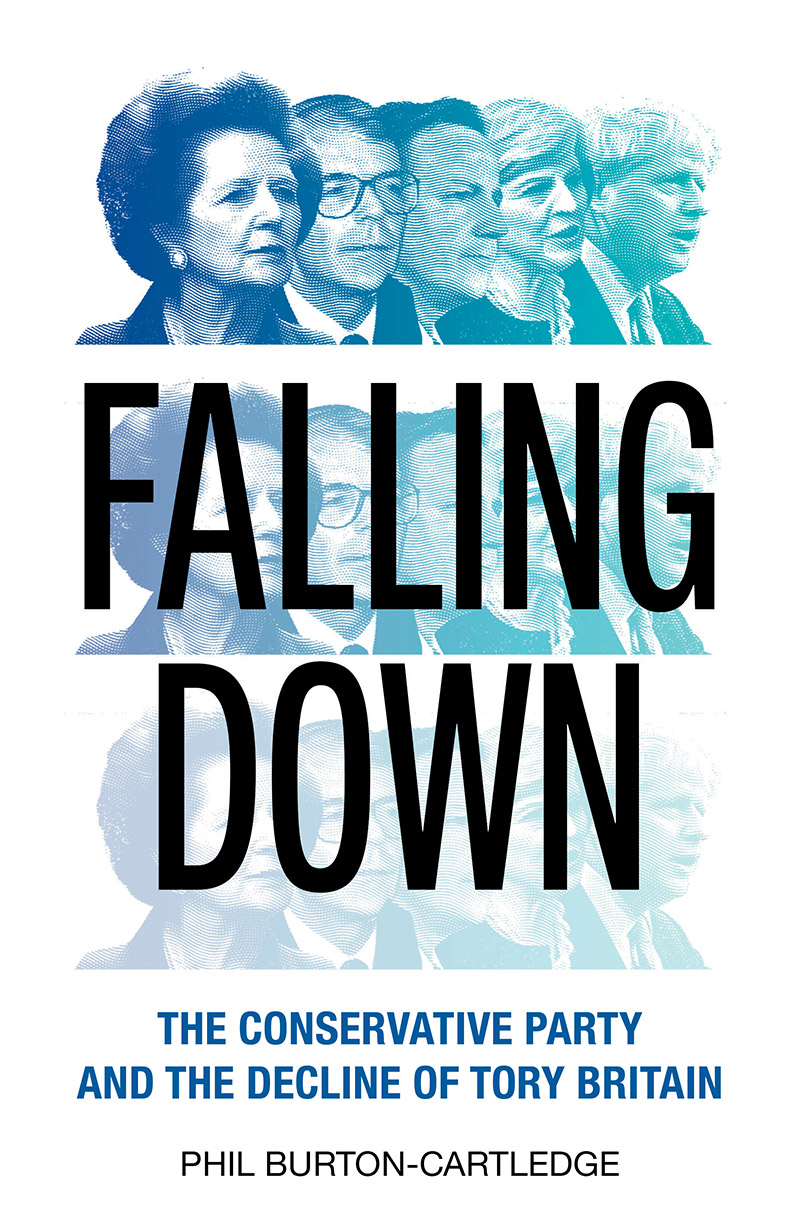
1 Falling Down : The Conservative Party and the Decline of Modern Britain Phil Burton-Cartledge
In the 1980s it sometimes seemed all the Left ever talked about, debated, for the most part argued over was ‘Thatcherism’, especially the analysis of such pioneered by Stuart Hall and others in the pages of Marxism Today. Thatcher’s three consecutive victories had a habit of focusing defeated Labour minds, Maggie, Maggie, Maggie, Out! Out! Out! Clearly wasn’t enough. A generation on and Cameron, May and Johnson have managed between them to chalk another foursome at Labour’s expense yet never sparked the kind of understanding and rethinking their more illustrious predecessor did. Phil Burton-Cartledge offers a powerful ideological response to this omission, though whether the decline of ‘Tory Britain’ translates into the Tories’ defeat at the polls who knows? 2022 will provide a route map toward the likelihood of that possibility.

2. Veteranhood : Rage and Hope in British Ex-Military Life Joe Glenton
More than I care to remember the highpoint of Thatcherism was framed by her 1982 Falklands misadventure. No doubt next year Johnson will come out all guns blazing to misuse the 20th anniversary for any electoral gains he can muster. Likewise it was Iraq that framed Blair’s decline to the extraordinary point of being re-elected Prime Minister in ’05 on the lowest share of the vote, 35.2%, of any British government. Both episodes quite rightly generated huge popular goodwill towards the veterans of these wars. Yet this goodwill, often mobilised in the cause of all manner of politics, scarcely understands what author, and former soldier, Joe Glenton calls ‘veteranhood’. In turns angry and informed this is a book that seeks a settlement entirely different from the mawkish ‘help for heroes’ variety.
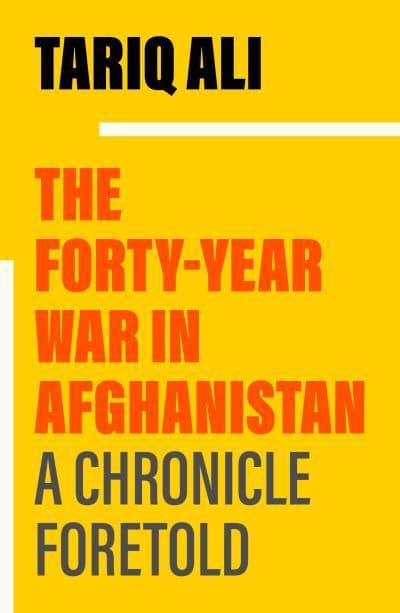
3. The Forty-Year War in Afghanistan: A Chronicle Foretold Tariq Ali
The undignified retreat of US, British and other forces from Afghanistan was undoubtedly one of the global news stories of the year. The crushing defeat of a client state at the hands of an insurgency which whether we like it or not clearly enjoyed popular support has left a human mess the occupying powers had nothing resembling the will to clear up with anything much more than pitifully piecemeal efforts. Tariq Ali’s mix of the polemical and the analytical on this most wasteful of conflicts are collected together in one handy volume to provide a much-needed wake up call for those who reminisce for the era of militarised liberal interventionism without accounting for the ever-worsening bloody mess it contributed to.
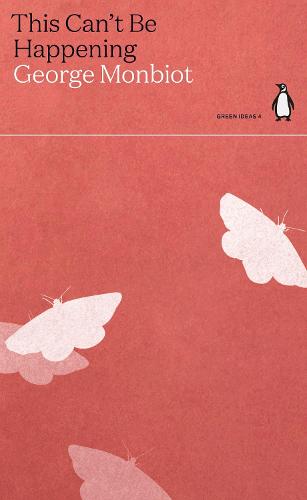
4. This Can’t be Happening George Monbiot
If the horrors of 9/11and their aftermath dominated most of the 2000’s, and this year’s helpless retreat of the occupying powers as its client state collapsed in Afghanistan represents some kind of undignified endpoint, what’s next? George Monbiot offers a brief, and to the point, case for the Climate Emergency. Few would argue with George’s choice but what makes his writing both urgently necessary and sharply astute is his combination of the factually investigative with the politically speculative. George not only catalogues the sheer size of the environmental disaster awaiting the next generation’s coming of age but crucially the potential for constructing the kind of alternative to moderate, if not eliminate, this cataclysmic threat.
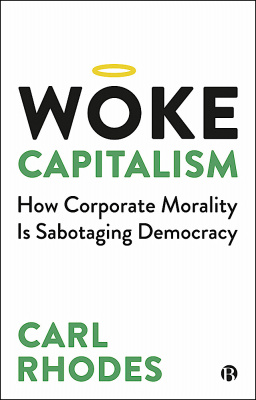
5. Woke Capitalism : How Corporate Morality is Sabotaging Democracy Carl Rhodes
Such is the size of this fast-approaching environmental disaster that apart from the 21stcentury version of flat earthers there is no serious effort to deny it. Yet incorporation of opposition and obfuscation of the facts on an industrial scale can be nearly as bad. ‘Greenwashing’ or as Carl Rhodes rather brilliantly puts it ‘ woke capitalism’ and his book provides just the kind of rigorous exposure of such antics corporations employ entire PR departments to avoid and never mind the costs.
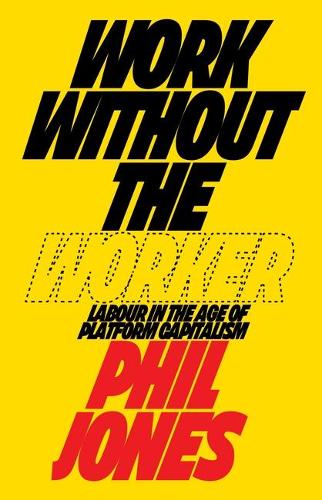
6. Work Without the Worker : Labour in the Age of Platform Capitalism Phil Jones
The ‘dignity of Labour’ vs ‘post-work’ debate can at times be vexatious with a strongly generational, inflection. That’s as ideological maybe, but doesn’t mean it isn’t worth having the argument. The clue to why this is important is in the name, y’know the Labour party. Readers don’t need to endorse each and every one of author Phil Jones’s conclusions to appreciate his five chapter themes in this admirably short n’ punchy book as the perfect jumping-off point for making such an argument productive (sic).

7. Free : Coming of Age at the End of History Lea Ypi
The accusation of ‘idealism’ at the expense of ‘practical politics’ is of course a familiar one. The necessity for both is effortlessly chronicled in Lee Ypi’s autobiographical account of growing up in first staunchly Communist, then post-Communist, Albania. Her tale is both deeply and affectively personal and at the same time unapologetically political. It is a combination that makes Lea’s book a wonderfully essential read.
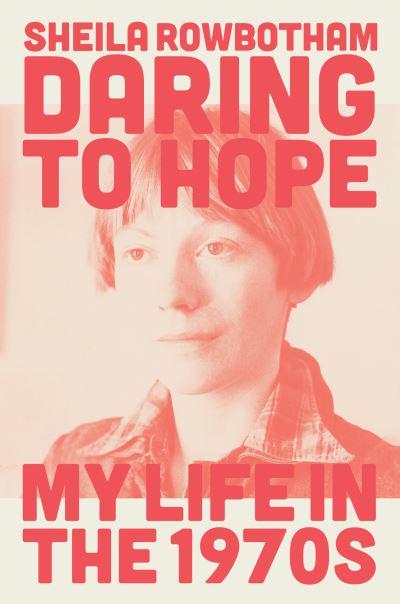
8. Daring to Hope : My Life in the 1970s Sheila Rowbotham
If there is one author and activist identified more than any other with the principle ‘the personal is political’ it is Sheila Rowbotham. Sheila’s follow up to her memoir of the 1960s, Promise of a Dream carries her personal, and political story forward to 1970s second wave feminism, the uneasy relationship of the women's liberation movement with socialism and the enduring radical, potential, of building from the grassroots up. Informative and inspirational, so much so it is liable to make the reader impatient to read what happens next, the Thatcherite 1980s.
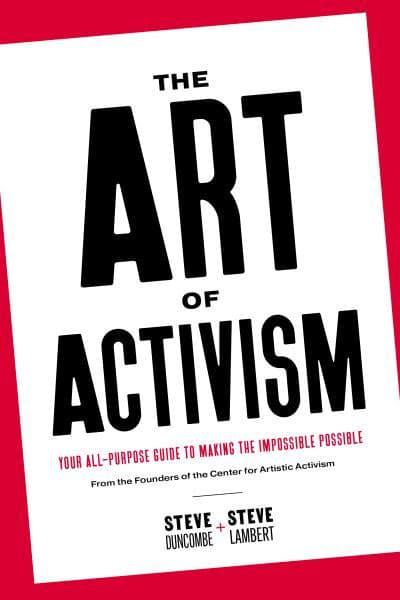
9. The Art of Activism Steve Duncombe and Steve Lambert
Steve Duncombe is the author of one of my favourite books on the very necessary fusion of politics and culture Dream: Re-Imagining Progressive Politics in an Age of Fantasy. First published in 2007, and recently republished in a most welcome new and updated edition. This new book, co-authored with Steve Lambert is a how-to guide to practicing what they describe as ‘artistic activism’. Lavishly illustrated the text mixes ideas on how to ‘do’ politics with creative application to change the ‘look’ of politics too. Neither have the imprint of a corporate makeover, this is a process from below. Please, please, please would the US-based authors come to the UK to run a training event?
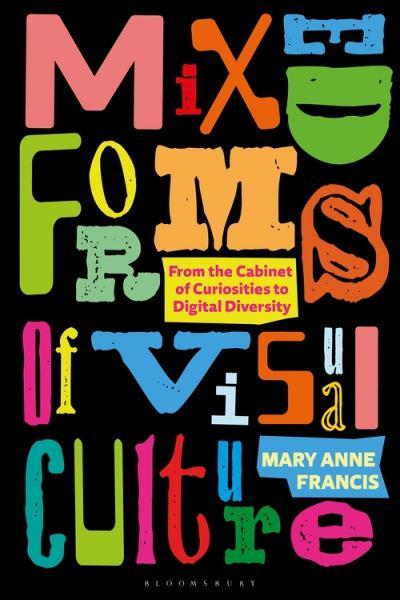
10. Mixed Forms of Visual Culture Mary Anne Francis
Mixed forms, the everyday in the hands of the artist transformed to achieve, project, provoke an entirely different response to the one utility had intended. This apparently complex concept made sense to me as I think of my co-founder Hugh Tisdale's beautifully crafted Philosophy Football designs not as T-shirts, but as using the T-shirt as a platform for ideas. None of this is to suggest reviving the dire cultural reductionism of prolecult, rather art as transformative by means and purpose. These apparently complex yet applicable ideas for a political culture often lacking in an imaginative and engaging visual culture are ready made for a next generation left for whom culture is a key terrain over which ideologies are contested. The book is beautifully packaged too, but priced out of anyone’s bracket for the lucrative library market. And so a different plea on behalf of this truly revelatory book. No criticism of the publisher, that’s their business, but a popular, competitively priced edition is surely deserved, there’s a readership for this, much-needed influence.
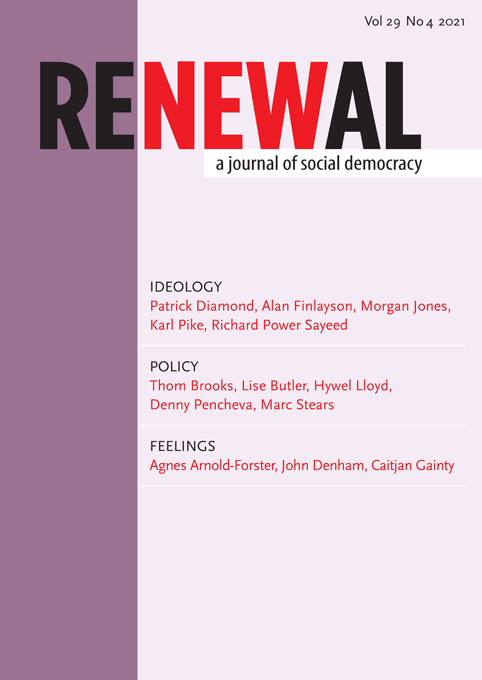
11. Renewal : A Journal of Social Democracy
The best kept secret of Labour’s plural left is the quarterly journal Renewal. Under-promoted, with too much of the look of an academic journal sure to put off all but the most inquisitive. Yet providing an exchange, and quality, of ideas nobody else in and around Labour provides. The latest, Winter 2021, edition includes long form writing on nationhood, Labour’s absent future, the politics of emotion, and much more. Looking for a New Year’s resolution? Subscribe.
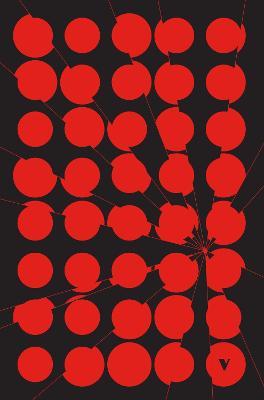
12. 2022 Verso Radical Diary and Weekly Planner
Once it was the Big Red Diary from Pluto Press which was pretty much a must-have for a certain part of the 1980s’s outside left. In recent years Verso have produced a ready made 21st century version and this year’s, now with accompanying and very stylish notebook, most certainly doesn’t disappoint. Illustrations and historical timeline spice up each week’s entries with short essays opening each month too. Rush to the keyboard and order one before 2022 is upon us.
Mark Perryman is the co-founder of the self-styled ‘sporting outfitters of intellectual distinction aka Philosophy Football
NoteNo links in this review are to Amazon, if buying books from corporate tax dodgers can be avoided, please do
What is Labour's Big Idea? Reading Guide
25.09.21
While Labour Conference gathered in Brighton Mark Perryman from Philosophy Football went in search of books that seek to describe what the party’s recovery might look like.
It hadbeen a while, Labour Conference and the attendant World Transformed Festival hadn’t gathered since September 2019. Since then there’s been the disaster of the party’s 2019 General Election defeat, Keir Starmer’s election as Labour leader, the Coronavirus crisis, unimpressive Scottish, local and by-election results, and Jeremy Corbyn’s ongoing suspension as a Labour MP. Plenty to discuss, or more often argue over, then.
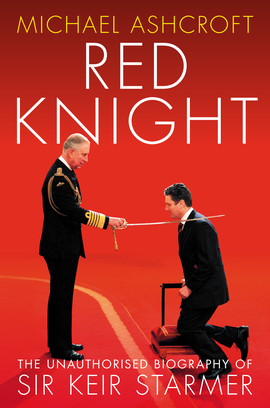
It is hardly ever mentioned but Keir Starmer had only been a Labour MP for a remarkably short time before becoming Labour leader, a shade under five years. Jeremy Corbyn 32 years, Gordon Brown 24 years, Tony Blair 11 years. Ed Miliband the same five years, but Ed had previously been a Labour Party special adviser, he knew the Labour Party inside out. Plus as Director of Public Prosecutions for Keir any such involvement in Labour would have been effectively precluded. Experience doesn’t necessarily mean better, or worse, but the lack of much in the way of Keir’s Labour backstory makes for political biographer Michael Ashcroft, his previous biographies include Rishi Sunak, Jacob Rees-Mogg and David Cameron, very hard work. Despite that Red Knight: The Unauthorised Biography of Sir Keir Starmer contains more than most currently know about Keir. A decent man, a campaigning lawyer, strong principles but thrust into a position his short period active in Labour let alone at Westminster leaves him dangerously exposed to simply going with the flow. ‘Captain Hindsight’ is an effective barb. Brighton is expected to settle that, we will see. Len McLuskey’s autobiography Always Red bids farewell as he stands down as a major figure in Labour politics since 2010 when he was first elected Unite General Secretary. A power broker in internal party politics of the old school who became Jeremy Corbyn’s most significant ally the first third of the book reveals the story of the man behind the machinations, a picture that hardly featured in the way he projected himself as a political operator which is a shame. The remainder of the book is his particular insider’s account of Labour under Miliband, Corbyn and Starmer, unashamedly partisan it is nonetheless a fascinating story of how a trade union operates inside Labour. A mode of operating his successor Sharon Graham won the General Secretary election on a platform of replacing, how that plays out crucial to the immediate future of Labour, and trade union, politics.
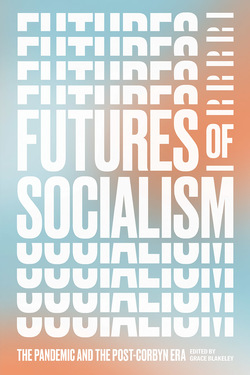
Both books deal as a key theme with 12.12.19 and its immediate aftermath. The seriousness of the setback Labour suffered, and the train of events that led to Keir becoming leader remain a potent part of the party’s present and will featured right across conference. Edited by Grace Blakeley Futures of Socialism : The Pandemic and the Post-Corbyn Era is the Corbynite interpretation of 2019 combining a belief that Corbynism must persist while not sparing any political blushes for what went wrong. Many of the contributors to Grace’s book would cite the late Leo Panitch as their single most important intellectual influencer, his final book, co-written with Colin Leys Searching for Socialism : The Project of the Labour New Left from Benn to Corbyn is likely to be a set text amongst a pessimistic left for a considerable time to come. Out of the Ordinary : How Everyday Life Inspired a Nation and How it Can Again by Marc Stears, formerly Ed Miliband’s Chief Speechwriter, offers one way to restore some optimism to Labour’s current fortunes. Staggeringly original while drawing on a wide range of inspirations, this is an argument that seeks to root Labour in locality and community. In Marc's book, he was a founder member, there is some overlap with the thinking of ‘Blue Labour’ a tendency that proffers a left affinity for patriotism, family and faith, a trinity that many would see as the antithesis of the progressive, Paul Embery has written Despised : Why the Modern Left Loathes the Working Class to convince readers otherwise. He may not convince, though dismissing his argument out of hand amounts to a counsel of despair, of next to no use either.
For the time being any transformation of the do-nothingness of despair into actually happening hope will inevitably be mapped on to a post-pandemic terrain. Luke Cooper’s Authoritarian Contagion: The Global Threat to Democracy absolutely connects the grounding of such a politics in a popular democratisation that provides a forthright alternative to the drift towards authoritarianism, personified , if you like, by Priti Patel. What Priti might do with what were previously considered pretty much inalienable rights doesn’t bear thinking about, it should, and Luke's book will help spark such thoughts.. The Great Recoil: Politics after Populism and Pandemic is the latest from Paolo Gerbaudo a theorist of an emergent digital opposition, and doesn’t disappoint in terms of the mix of ideas that challenge convention and innovation of practical application. As we shift from coronavirus crisis to post pandemic we’ll need both, in abundance. Whilst 2019-2021 might appear unprecedented in terms of a contest between the spread of disease versus a lockdown ‘crisis’ is a well-worn theme in left politics, too often deployed to mask an inability to interpret the significance of socio-economic change. Donald Sassoon, historian of socialism, in Morbid Symptoms: Anatomy of a World in Crisis provides the historical and global context to give due credence to the significance of such change, that both pre-dates the pandemic and has been accelerated by it. To challenge such change in the cause of something better Oli Mould offers a towering polemic in Seven Ethics against Capitalism: Towards a Planetary Commons that centres the necessity to resist co-option and subservience because as Margaret Thatcher once said, there is no alternative. Go Big : How to Fix the World by Ed Miliband is a welcome attempt to fuse the kind of holistic anti-capitalism of Oli with the Parliamentary Socialism Ed’s father Ralph was such a renowned critic of. An unworkable combination ? Yes too often it has proved to be, though the originality and cheerfulness of Ed’s ideas is a most welcome effort to convince it doesn’t have to be.
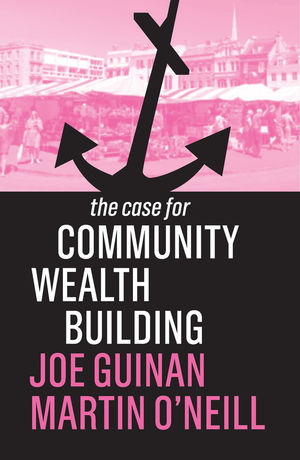
In 1979 In and Against the State was published by the quixotically titled ‘London Edinburgh Weekend Return Group’, a pioneering text , fiercely practical in applying a politics of active participation in the institutions we variously work for, depend upon, live under and a strategy towards not only resistance to them but their transformation, I still have my now very dog-eared copy . Hugely influential amongst a libertarian left strand struggling to survive Thatcherism The re-issuing of In and Against the State with a new introduction by Seth Wheeler and contributions from John McDonnell and John Holloway is welcome, timely and another reminder to those on our ‘side’ that, actually, there is an alternative but it might not be the one found in the textbooks of statist-socialism. Rather a revived version of such an alternative is to be located in a mix of popular democracy, local accountability and participation while delivering fully functioning and much improved services compared to the immiseration provided by decades’ worth of privatisation, especially 'outsourcing' of hitherto public services. Or in other words, The Case for Community Wealth Building as described by the authors Joe Guinan and Martin O’Neill, pioneered by Preston Council and increasingly practiced by Labour local authorities all over.
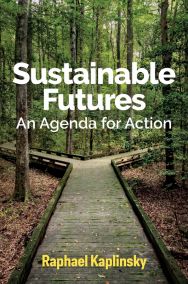
Such scale of ambition, from below and above, couldn’t be more urgent in the current era of both post pandemic and an actually existing climate emergency. Mathew Lawrence and Laurie Laybourn-Langton’s Planet on Fire : A Manifesto for the Age of Environmental Breakdown follows on from where Labour’s Corbyn era ‘Green New Deal’ left off. The threat of everlasting change for the worse borders on the unimaginable which leaves us with a party politics barely able to cope. The Green New Deal sought to square that circle yet labourism’s productivist tendency was always likely to blunt the urgency and scale of change required, and it did. The impetus now exists primarily outside of the party political Climate Change is Racist by key green thinker Jeremy Williams is typical, of the deep-seated radicalism this impetus is creating, Jeremy’s book a primer in linking climate change to global inequalities via a framing that is chosen to disturb, racism. Raphael Kaplinsky’s Sustainable Futures: An Agenda for Action is another response with a purposefully positive case for social-economic change out of adversity for the better. The political task remains to combine the harshness of Jeremy’s critique of root causes with Raphael’s positivism of a solution. Without that combination we will fail.
Class politics of a range of varieties has been experiencing that failure since the triumph of neoliberalism in the latter part of the twentieth century. The Shadow of the Mine : Coal and the End of Industrial Britain co-authored by Huw Benyon and Ray Hudson is an epic account of this defeat for an industry, and the communities and politics it helped produce. Of course such a defeat goes beyond simply one industry, one largely atypical version of working class community. Cynthia Cruz’s The Melancholia of Class : A Manifesto for the Working Class makes a hugely original case for such defeat as a contest between class assimilation versus class annihilation. The interesting part of her argument is that this contest serves to produce a working class culture that is fundamentally melancholic.
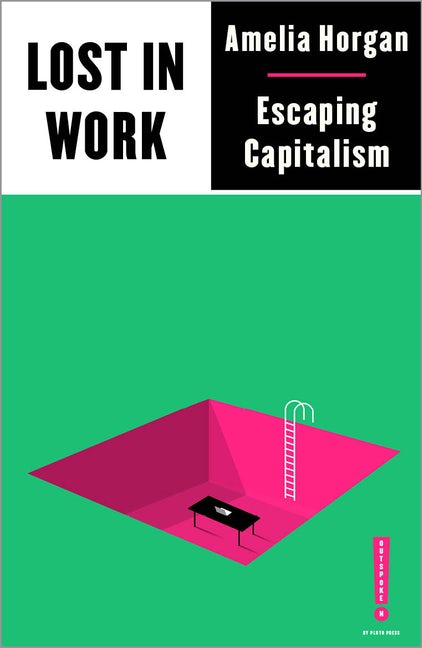
In this context it is noticeable how increasingly younger writers on the left are problematising the inescapable centrality of work not only to our everyday lives but the future society socialism promises. A manifesto for such a politics is provided by Amelia Horgan with Lost in Work: Escaping Capitalism. Jobification, slackers, resistance, play, a very different agenda to labouring under the illusion that employment is the best that such a socialist society can aspire to provide. The American writer Sarah Jaffe has been a key influence on the emergence of this post-work politics, her latest book Work Won’t Love You Back is certain to continue that, and deservedly so. Sarah’s against the exploitation, exhaustion and atomisation work produces but she also describes the means of escape; joy, pleasure and a satisfaction that is both of the individual and the collective. One alternative that the digital era has helped reinvent is a ‘sharing economy’ or perhaps that should be for the most part a so-called sharing economy. This is very much the view of author Tom Slee in his What’s Yours is Mine : Against the Sharing Economy. It is certainly the case that the likes of Airbnb and Uber serve no one’s interests except their owners and shareholders' at the expense of those doing the sharing. But to share, aided by online innovation, is a natural accompaniment to the kind of society the post-work thinkers articulate, a very different task for an ambitious left would be to set itself the aim to establish such organisations as a signpost towards the art of the possible.
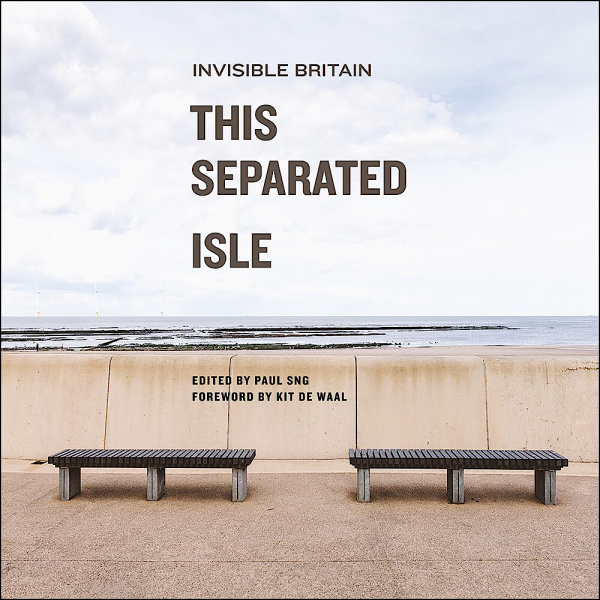
Post work is an idea that has come from a radicalised left. Progressive patriotism is more difficult to locate. Championed by Keir Starmer as a new direction for Labour yet part of Ed Miliband, Gordon Brown and Tony Blair’s leadership politics before him. Jeremy Corbyn would also speak of a national story that includes the Levellers, the Tolpuddle Martyrs and Cable Street. Progressive patriotism is a multi-faceted idea that it would be quite wrong to write off as cover for a shift to the right, even if on occasion it is (mis) used for exactly that purpose. Edited by Paul Sng This Separated Isle is a fantastic starting point towards a radicalised patriotism featuring incredible photos and short punchy essays that portray this island of modern Britain as a contested space of despair versus hope. Owen Hatherley’s collection of his essays Clean Living Under Difficult Circumstances does something similar with an exploration of how architecture shapes lives and communities from Walthamstow to Edinburgh via ever-decreasing public toilets and the closure of public libraries. Enchanting and imaginative, with excursions to other nations as well, a truly great read. A Small Man’s England by Tommy Sissons focuses on England, a nation in Keir Starmer’s version of progressive patriotism entirely subsumed into the wrapping of himself in the Union Jack. In contrast Tommy’s book is a powerful argument for a solidarity that knows where it is coming from, England. What this is up against, the cultural and political legacy of an empire on which the sun never set, is the subject of Peter Mitchell’s Imperial Nostalgia: How the British Conquered Themselves. The failure to find the means to let go of this particular part of Britain’s national story is why that narrative is so trapped in the past in a manner that shapes our present. The pre-eminent thinker on a politics that has latterly acquired this progressive patriotism label remains Tom Nairn. His seminal work The Break- Up of Britain first published in 1977 is out once more in a new edition with an entirely original introduction by Anthony Barnett. Tom’s argument is that the British state is mired in an outdated and unworkable Union. Unionist Labour fundamentally rejects this and in Scotland has suffered the disastrous consequences, an electoral defeat not only epic but a key factor in Labour’s poor prospects of winning a British General Election on its own. Three independent nations, one island, Tom’s break-up has taken a while but despite Labour conference scarcely countenancing such a prospect few would doubt its coming.
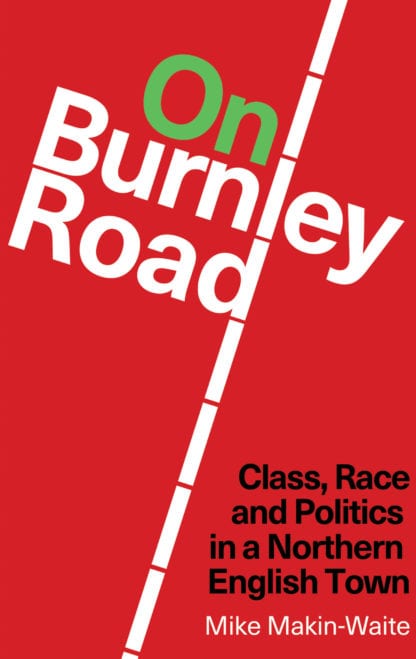
The reservations about the fusion of the national and the popular being any kind of basis for a Labour recovery are rooted in how this has traditionally been the politics of the far right. On Burnley Road : Class, Race and Politics in a Northern English Town is Mike Makin-Waite’s compelling account of the disastrous consequences in one northern town when such a politics and the issues they seek to exploit proceed unchallenged, the fascist British National Party (BNP) winning not only support but council seats too and at Labour’s expense. And it gets worse, in Codename Arthur Nick Lowles reveals for the first time the story of how an anti-fascist spy infiltrated the BNP, the undiluted fascism of their politics and how this directly led some of those that follow them to commit ever-increasing acts of violence, including bombings. The BNP, thankfully, are long gone, defeated by both broad, community led, campaigning and the tradition of splits that typifies these kinds of parties from the National Front in the late 1970s onwards when they seek to go wider than their fascist core to become an electoral force. Joe Mulhall’s Journeys into the Far Right brings this account right up to do with a resurgent politics that combines its racism and nationalism into a hate-filled, often violent, mix on an international scale from Britain, across Europe to the USA, India and Brazil. Both insider and analytical this is a handbook for a future none of us would want to see. Post-Internet Far Right : Fascism in the Age of the Internet by the writing duo who go by the name '12 Rules for What' informatively and expertly deconstruct the attractive idea that social media is where the left challengesthe 'MSM' aka mainstream media. Yes it does, a bit, but of far more significancec is the huge growth and hyper organisation of a digital far right ranging from conspiracy theorists to well-armed terrorist cells. A wake up call for those who switch on Novaramedia and comfort themselves all will be OK with the online world, it isn't.

The title of the latest book from Paul Mason says it all in terms of urgency and agency How to Stop Fascism and doesn’t disappoint. Parts of the left do have an unwelcome habit of sticking the label ‘fascist’ too readily, too lazily, with an apolitical abandon. Paul in contrast roots anti-fascism in an understanding of the history and ideology of where fascism come from in order to confront and defeat it in the here and now. Not just a good read, though it is, very much so, an absolutely essential one too.
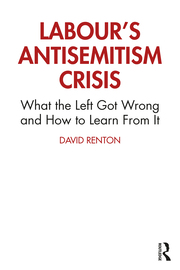
Central to fascist ideology, with the horrific consequence of the holocaust, is antisemitism. There can be no greater shame therefore than the sticking of this label, whether we like it or not, and I most certainly do not, antisemitic on the Labour Party. Few would argue that the entire party is antisemitic, not many believe the bulk of the membership are either. But by shrugging off with an air of angry resentment in the name of the party that some are Corbynism made a disastrous error. A combination of simple-minded conspiracism and a lazily ill-informed confusion of Jewishness as a whole with the actions of the Israeli government in particular isn’t a problem that anybody on the left should ignore, play down or reduce to whataboutery. Originally published in 1984 long before any of this Steve Cohen’s pathbreaking That’s Funny You Don’t Look Anti-Semitic : An Anti-Racist Analyis of Left Antisemitism provided an uncomfortable account of how antisemitism has always existed within the left , an outline of how otherwise once natural allies the left and the Jewish community need to relearn how to work together and a methodology towards making the crucial distinction between anti-zionism and antisemitism. After some years being almost impossible to get hold the book was made available again by No Pasaran Media in 2019 pointing to how very relevant Steve’s analysis remained but too late to do very much about what became known as ‘Labour’s antisemitism crisis’. In his Confronting Antisemitism on the Left : Arguments for Socialists Daniel Randall is very clear that his ambition is to bring That’s Funny up to date with a renewed purpose and energy, he does so, with considerable skill. This is a polemic aimed at erstwhile comrades, Daniel’s own politics, a particular brand of Trotskyism, might occasionally get in the way of his argument but one of the principles of a plural left should be to jettison an unwelcome habit of not finding the means to disagree on ABC despite agreeing on LMN and as a result failing to work together on XYX. Both Steve and Daniel’s are fine books but the definitive work for me on this most vexatious of subjects is Labour’s Antisemitism Crisis: What the Left Got Wrong and How to Learn from It by the longstanding leftwing writer on fascism and antifascism David Renton. Definitive in scope, politics and writing style this is a hugely impressive piece of writing and puts the Keir Starmer era Labour Party’s own pitiful efforts at antisemitism training to shame. Sadly the same Labour regime in all likelihood will ban David from speaking at Labour meetings on the subject because he doesn’t appear on some approved list to do so. In the face of all that David’s book demands the widest possible platforms and readership, what a disappointment then it has come out from an academic publisher with their usual unimaginative cover and high price. No criticism of Routledge intended, well done for publishing it, but this book’s audience stretches way beyond academia, hopefully a more attractively packaged and reasonably priced second edition will be on its way soonest, in the meantime readers should grab a copy soon as they can.
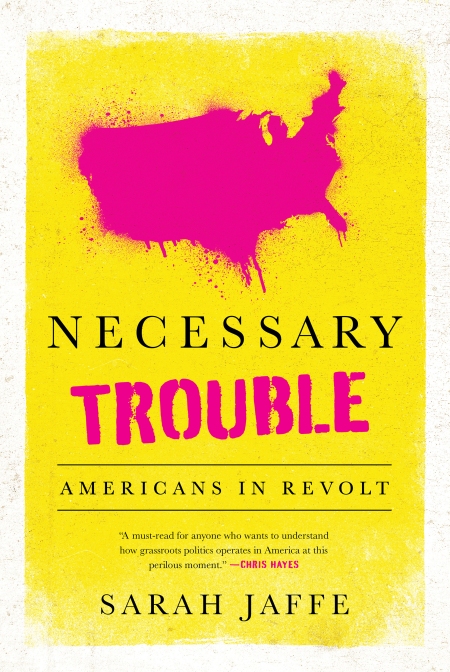
Resisting the far right, confronting antisemitism, reversing the climate emergency, adapting to the changing place of work in daily life and communities will be no mean feat. The Labour Party will continue to be a key part of that process though whether it helps or hinders the feat remains to be seen. Prior to Work Won't Love You Back Sarah Jaffe’s earlier book Necessary Trouble while focussing on America is testament to the conditions and prospects of what in activist-speak is termed ‘movement-building.’ Published in 2016, the year Trump was elected President, and Jeremy Corbyn re-elected Labour leader, the question five years on must be how those conditions and prospects shape up currently in the era of Biden, and Starmer. Jeremy Corbyn, and in the USA Bernie Sanders, sought to construct a politics that fused party and movement, whatever the scale of their achievement in the end both failed. A failure both electorally and with regard to this fusion, for the party as movement too. Of course, the two are related, when one loses, both lose and as Rodrigo Nunes argues in Neither Vertical nor Horizontal: A Theory of Political Organisation finding a way through this impasse to build anew requires going beyond unhelpful binary oppositions for any signs of left renewal.
Millennials, zoomers, post this and that, fully automated wotsit, there is an unnerving tendency for the left to believe that in order to be relevant only all things brand spanking new will do. Yet to learn from the past doesn’t imply an aversion to the changed conditions of the present. Sylvia Pankhurst: Sexual Politics and Political Activism by Barbara Winslow is a powerfully written rejoinder to such ahistoricism, Sylvia’s story is of militant internationalism, committed class politics, the labour movement central to effecting change. An unrepentant communist, Sylvia Pankhurst represented a kind of feminism the establishment would rather not associate with women winning the vote, we should. Editors David Featherstone and Christian Høgsbjerg's The Red and the Black: The Russian Revolution and the Black Atlantic do something similar in challenging the conventional view of 1917 which makes precious few links to an emergent oanti-racism and black radicalism of the same period from America to empire. Of course neither the suffragettes nor 1917 are any kind template for Black Lives Matter or the movement thaf erupted in the wake of the murder of Sarah Eveard but neither should we be tempted to assume that the only fitting destination for such histories is a dustbin. The latest issue of the journal Twentieth Century Communism takes as its theme ‘ sexuality, respectability and communism’ learning how Dutch communists in the 1940s sought to spark a sexual revolution by distributing condoms in factories just one gem to discover when history is suitably retrieved. For those of a certain age 1989 seems just like yesterday while for millennials and zoomers its history, ancient history. Yet the epochal events of that year and those they helped shape afters are very much a part of our present. Revolutionary Rehearsals in the Neoliberal Age edited by Colin Barker, Gareth Dale and Neil Davidson could perhaps be more accurately titled ‘revolutionary reversals’ , helpfully contributors chart the various ruptures of 1989 from Eastern Europe and South Africa to Latin America. Any kind of British revolution is so distant it might as well be non-existent yet our world remains shaped by change on this kind of dramatic scale, mostly for the worse, a critical internationalist left cannot afford not to learn these lessons of defeat rather than simply celebrate the moment of victory and never mind the rest.
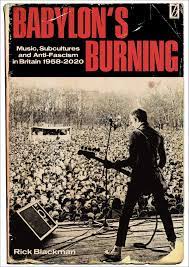
The cultural front will scarcely be acknowledged in either Labour Party Conference proceedings or much of the fringe, whereas at The World Transformed it is as close to centre stage(sic) as cultural politics gets in the arena of the party political. This is as much of a division in Labour, some would argue an even more significant division, as left vs right. Marcus Gilroy-Ware’s After the Fact? The Truth About Fake News details how the media is both a product of politics and produces an entire culture not simply headlines and bulletins. It is these means of production that generate fake news on the scale of anti-mask, anti-vaxx witnessed during the pandemic. What kind of left is equipped to acknowledge this let alone challenge it? As Marcus shows, one that contests the cultural front. National liberation movements, often out of necessity, have understood the role of what writer Michael Lavalette calls ‘cultures of resistance’, specifically in Michael’s new book Palestinian Cultures of Resistance where his focus is on Palestine’s ‘national resistance literature’ of the 1960s to early 1990s. With the huge, yet reactive, spurts of Palestine solidarity protests whenever Israel launches its attacks on Gaza and the West Bank it is surely time to provide a platform for the modern-day versions of such cultural resistance for a broad, popular, pro-active movement of Palestine solidarity to take shape. William Morris might not quite fit the label ‘national resistance literature’ but it’s not far off what out of history he provides us with. Quintissentially English yet avowedly internationalist his poetic tribute to the 1871 Paris Commune, The Pilgrims of Hope in a new edition with an introduction provided by Michael Rosen couldn’t be more effective as a response to the fiction that Morris did a nice line in floral wallpaper and that’s about it. Rather he was, and remains, a true English revolutionary. For me Rock against Racism (RAR) 1978-81 remains the pre-eminent practical example of the fusion of politics and culture. It may be generational but to my mind there’s been nothing like it since, and more’s the pity. In Babylon’s Burning : Music, Subcultures and Anti-Fascism in Britain 1958-20 Rick Blackman uniquely provides not only a spirited account of RAR but both a prehistory and postscript of movements of ‘pop n politics’ which both inspired it and were inspired by.
By means of escape from Labour’s conference floor or all that hard thinking at The World Transformed a little crime fiction might not go amiss with almost as much intrigue, conspiring and backstabbing as factional warfare manages to conjure up. Chris Brookmyre’s 2019 Fallen Angel is now out in paperback managing to combine a critique of corporate PR, exposure of the murky appeal of conspiracy theorising and an at times mesmerising plot of murderous intent. Or his latest The Cut which uses one of his favourite devices revisiting an old crime to find not all was what it seemed, not even remotely. Pure escapism, or a means to view Labour politics with a new eye after a good night’s read?
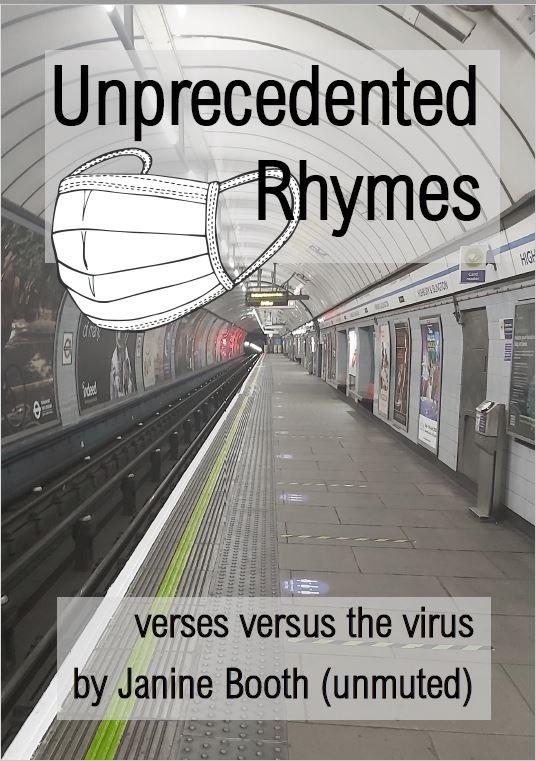
Alternatively if in Brighton for conference and fringe a read to remind delegates and visitors of the place when back home instead of a stick of rock that will only rot our teeth. Attila the Stockbroker, the bard of Brighton and Hove Albion, member of nearby East Worthing and Shoreham CLP, punk poet and ranter of considerable repute, unforgettable live, nearly as good to read, Heart on My Sleeve: Collected Works 1980-2020. Or Janine Booth, fellow poetic ranter with a socialist-feminist tendency, labour historian, RMT activist, member of Lewes CLP down the road, one of her CLP’s conference delegates, pioneer of the Spoaken Word night in the town. Her latest poetry collection Unprecedented Rhymes : Verses versus the Virus bang up to date Covid poems and poignant, the apparent absence of iambic pentameters notwithstanding.
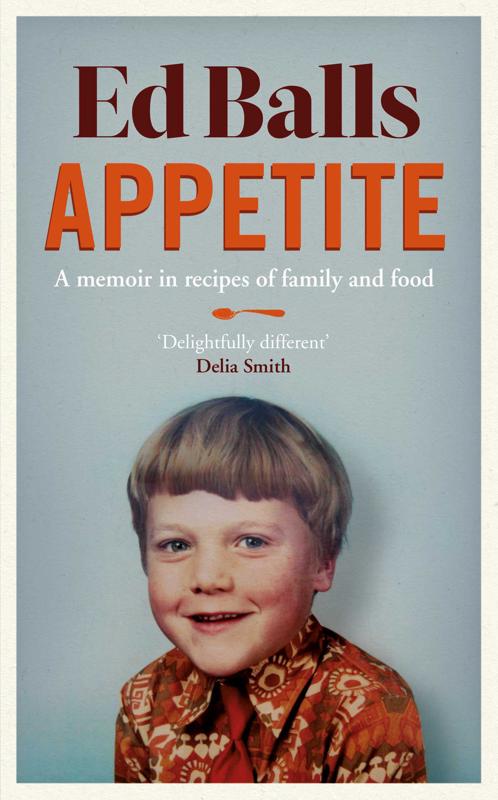
Or why not serve up a supper after a hard day at conference with an Ed Balls recipe book ? Not a sentence I’ll admit I had ever previously imagined myself writing. Appetite: A Memoir in Recipes of Family and Food is warm, and endearing and with enough culinary insight and originality to be taken seriously which left me wondering why so few of these qualities shone through when Ed was a frontline politician. Labour party culture and Westminster expectations have a lot to answer for. Only quibble not too much for us vegetarians, volume two, Ed Balls saves the planet one recipe at a time? Reinvention complete, Ed Balls eco-warrior
Before Blair, Brown (and Balls), Miliband, Corbyn, Starmer came those long years of defeat 1970-1997. This Labour Conference follows the 2010-21 years of Labour defeats, plenty would predict these won’t end any time soon either. That earlier period was marked by a critique in and around the party of the limitations of labourism with the newly translated works of Italian Marxist Antonio Gramsci a huge influence. A new biography Antonio Gramsci by Andrew Pearmain provides the political-historical context that explains, but never restricted, Gramsci’s ideas to serve as a ready-made introduction for new generation left intellectuals. The most significant figure applying Gramsci’s ideas to an understanding of both Thatcherism and Labour’s defeats, in the face of, was Stuart Hall. James Procter’s short, and very accessible book Stuart Hall is an excellent introduction to his work for those unfamiliar and a reminder for those who were once familiar but the years since have dimmed the memory, and perhaps the politics.
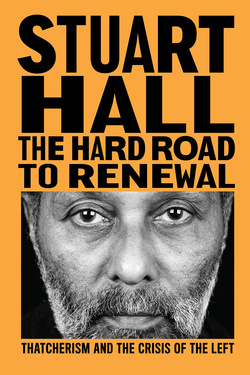
Which brings me to my number one book to help read the 2021 Labour Conference and afters, to guide our ideological way through the debates at The World Transformed. First published in 1988 following 1987 Neil Kinnock and Labour’s third successive General Election defeat, Labour in 2021 and now reissued Stuart Hall’s The Hard Road to Renewal: Thatcherism and the Crisis of the Left consists of his hugely original essays from these years. Stuart pioneered the analysis of the Thatcherism as a decisive break with the post-war consensus, as neoloiberalism we've been living with the consequences. Uniquely he refused to divorce this from a critique of the left's own failings , not as a cover for either the Labour right or hard left, but something different. And that something would be founded on ideas and coalitions, a new common sense, a hegemonic left. Still relevant, highly readable, the connections between those defeats andc the reasons for back then and now are uncanny. Readers who make those connctions won't much cheerier about Labour's immediate prospects but they will be prepared for a road that may be hard yet full of possibility. What better take home for politics after Brighton ’21 could there possibly be?
Note No links in this review are to Amazon, if you can avoid giving money to billionaire tax-dodgers who profit from their employees’ low wages and poor working conditions please do.
Mark Perryman is the co-founder of the self-styled ‘sporting outfitters of intellectual distinction’ aka Philosophy Football. His latest book is Corbynism from Below
Ten Books for May Days
30.04.21
1st May, a workers day, to celebrate Philosophy Football’s Mark Perryman has found ten books for all our May days
Mayday! Mayday! Mayday! The traditional distress call when things are on the verge of going hopelessly wrong. Come the morning of 7th May and the Scottish, Welsh polls, Hartlepool by-election, various mayoral plus numerous local election votes have been counted from the day before and it will be either Boris Johnson or Keir Starmer, possibly both, who will be calling for help as losses pile up.
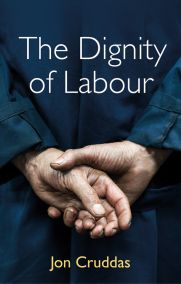
The Dignity of Labour the debut book from one of Labour’s brightest thinkers, the MP Jon Cruddas will surely be a key text for any post-election debrief. Rather unfairly presented as the ‘old’ versus all the new, bright, young radical thinking on Labour’s rather fraying left fringe, instead this book adds a perspective rooted in workplace culture and organising which complements rather than contradicts his new generation peers. In the post Corbyn present Starmer era this is the kind of axis round which ideas and initiatives can prosper. Fortunately Jon provides both in abundance to get us going. What a great way to start a month’s worth of reading.
On the 7th of May much attention will be paid to Labour’s polling in the so-called ‘Red Wall' seats, is the loss of Labour’s traditional core vote a product of geography, class, politics? Or a mixture of all three? Tom Hazeldine’s The Northern Question goes in search of some answers within the parameters of what he describes as a ‘divided country’, a division produced out of a political class’s decision to prioritise financialistion over production, London and the south-east over the north. A historical travelogue not for the politically faint-hearted.
Irreversible? For these May days it might sometimes seem like this. In Paint your Town Red Matthew Brown and Rhian E.Jones serve to fire up the spirit of hope with the story of how Preston, Matthew is the city’s Labour council leader, managed to reverse decades of privatisation, outsourcing, the ghost towning of High Street shopping, via a highly localised socialism. Together they both tell Preston’s story but crucially how other towns and cities, north, and south, could adapt the lessons to their own circumstances, if the political will is there to do so.
An invaluable source for such will is the posthumously published Robin Murray : Selected Writings skilfully edited by Michael Rustin. Robin was that rare thing in an economist, macro in vision, micro in practical application, able to communicate both to the studiously non-economist in a manner that informed and inspired. Much missed, this collection ranges over Robin's key essays and a wonderful variety of lesser known ones. If May Days fade to grey this is a book to brighten the soul.
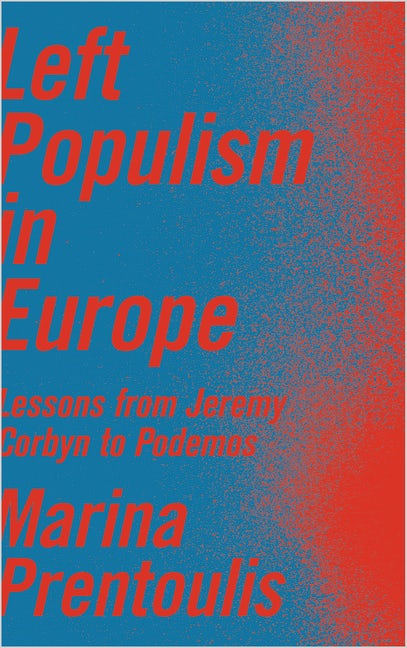
Two dominant themes of the past five years or so have been populism and pasokification. The first, shaping a bloc of support that goes beyond traditional political loyalties, has primarily been identified with the Right, Trump, Farage/Johnson for example. The latter, with the left, traditional social democratic parties in headlong decline as they suffer huge losses not only to this populist right but also to smaller radical parties shaving off support on their left flank too. Left Populism in Europe by Marina Prentoulis is a very welcome argument that these are not simply binary oppositions. That in their different ways, a Corbynist Labour Party , Syriza in Greece, Podemos in Spain, were most successful when they were a synthesis of both a left version of populism with a radicalisation of social-democracy. And the differing rates of failure of all three, Corbyn, Syriza and Podemos was due to not successfully combining the two. A book to expand our horizons beyond Britain across the European Left.
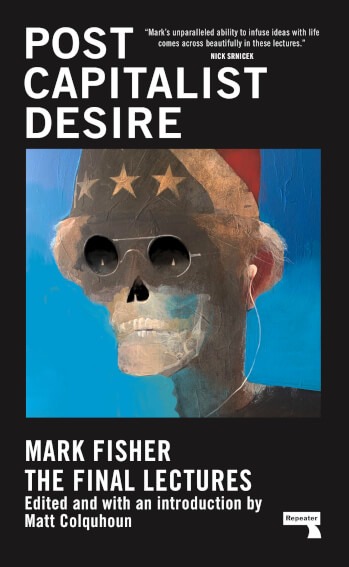
Mark Fisher was a writer who single-handedly expanded the intellectual horizons of an entire new generation of left thinkers. The collection, edited by Matt Colquhoun Post Capitalist Desire consists of his final lectures and provides a real insight into Mark's contribution, and our loss. Ranging over revolution, consciousness and Marxism, the themes may seem familiar yet Mark’s approach, and explanation, was entirely original which shines through on every page of this magnificent, if tragic, epitaph of a book.
Edited by Des Freedman Capitalism’s Conscience isn’t quite a funeral notice on the occasion of the Guardian’s 200thanniversary, though not far short. Never mind the technological, cultural and economic challenges to all versions, but particularly newspapers, of ‘legacy media’. The argument of the contributors, across a diverse range of themes is that the daily house journal of the liberal left has simply failed to keep up with how those two labels, liberal ideals combined with left-wing politics, have changed. Only the most dogged defender of the paper would disagree but for many of us we cannot resist it as a daily read, a reference point for our agreement, and disagreement, though whether that will be enough to sustain the paper, and for how long, who knows?
At its best the Guardian remains peerless as an investigative and campaigning newspaper. This has absolutely been the case throughout the pandemic, day after day, edition after edition, revealing the truly horrific threat of a deadly disease, exposing the lethal and corrupt incompetence of the Tory government’s handling of the crisis , offering positively radical routes towards a post-pandemic politics. All very necessary and most welcome yet it is Many Different Kinds of Love by poet, author, Guardian contributor Michael Rosen that best mixes the inevitable, and essential, combination of the personal, and the political as finally, hopefully, we escape from the immediacy of the disease to engage with what comes next. In Michael’s inimitable style a book that is moving, funny, angry and idealistic.
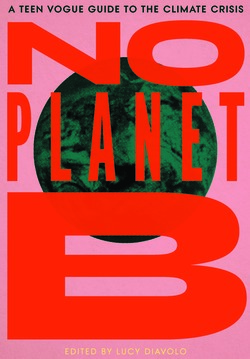
Part of what comes next, or at least should come next, must be a renewed commitment by both governments and social movements to reverse the climate emergency. However bad the scale of the Coronavirus crisis, to be brutal it pales into insignificance compared to the pain, suffering and deaths the climate crisis threatens to inflict, worldwide. What is encouraging however is the breadth of informed concern and dedicated desire for change this is provoking. A measure of this is the Teen Vogue collection No Planet B edited by the magazine’s politics editor Lucy Diavolo. No, this is not a misprint, the teenage edition of Vogue has a politics editor and has filled a book with chapters on the climate emergency, almost all written by young women aged 10-25 years, chapters that make the connections between the environment, migration and inequality with an imperative for action that prime minsters and party leaders, almost all male, aged 50-65 years, could well do with reading. A book from a new generation for readers of all ages.
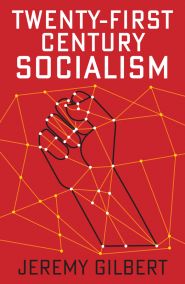
And my number one pick of ten books for a May day's read? Twenty-First Century Socialism by Jeremy Gilbert. A short read, almost a manifesto, for the ambitious can be dusted off in one May day to leave the remaining thirty, having interpreted the world, to change it. The meaning of capitalism, the promise of socialism, the ideas for a programme of transformational politics and a strategy for how to achieve them, if books in the right hands really are weapons, this one’s thermonuclear.
Note no links for purchasing the books are toAmazon, if you can avoid giving money to tax-dodging corporations please do
Mark Perryman is the co-founder of the self-styled 'sporting outfitters of intellectual distinction', aka Philosophy Football.
Top
